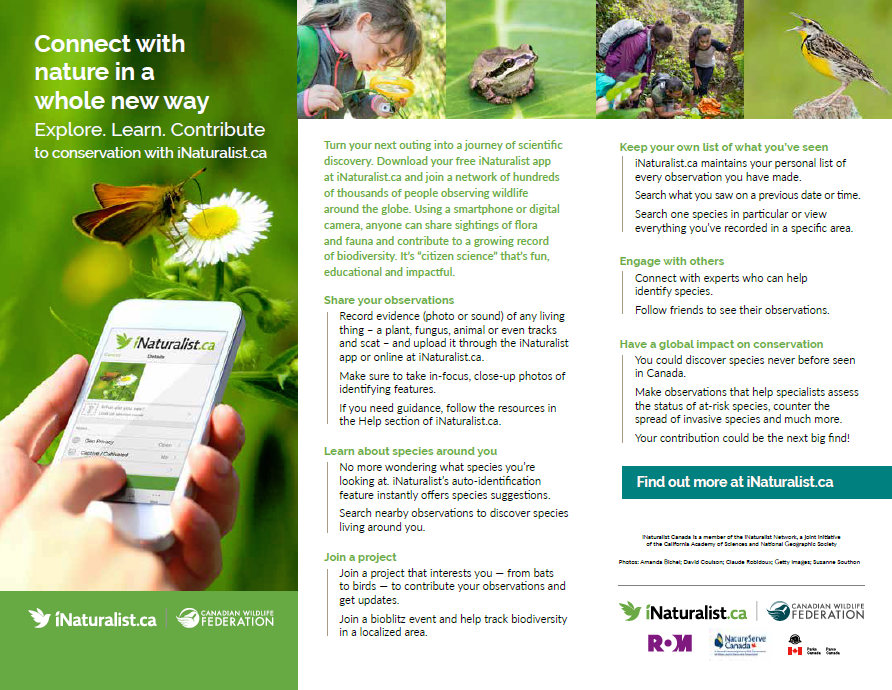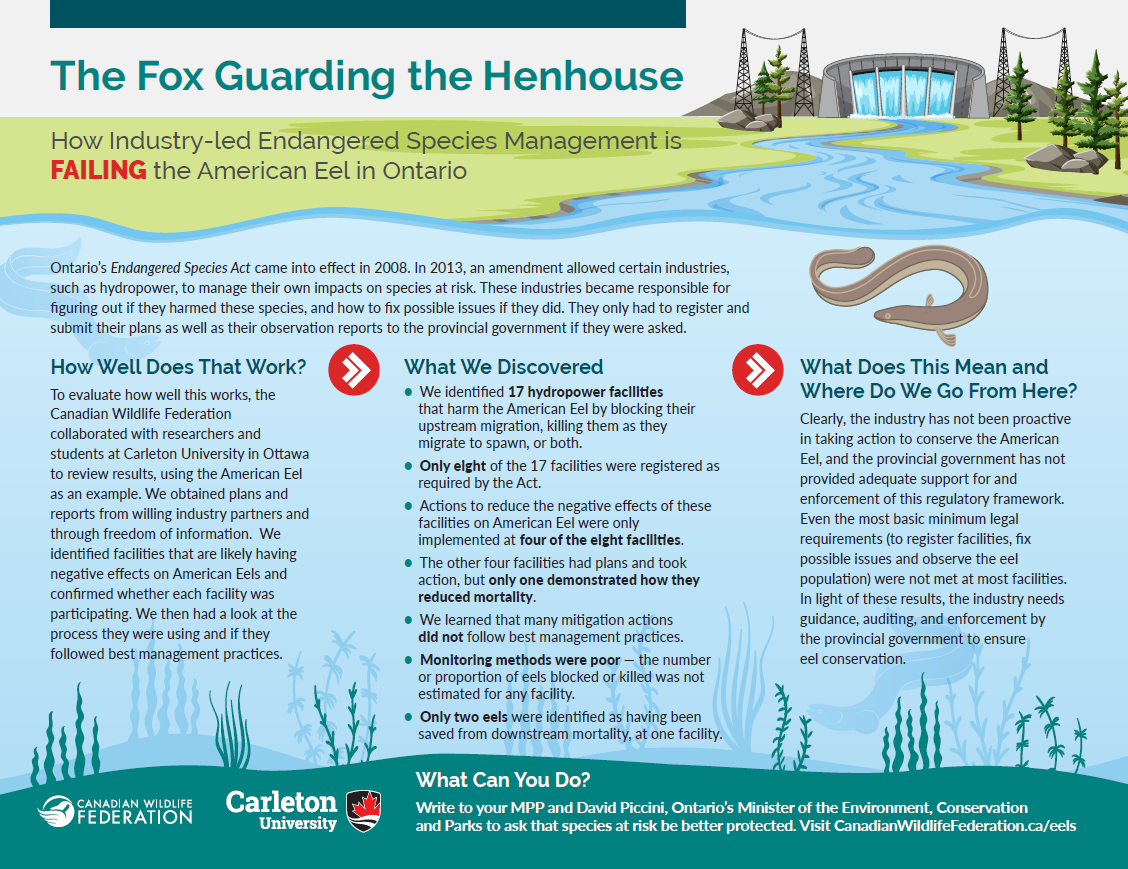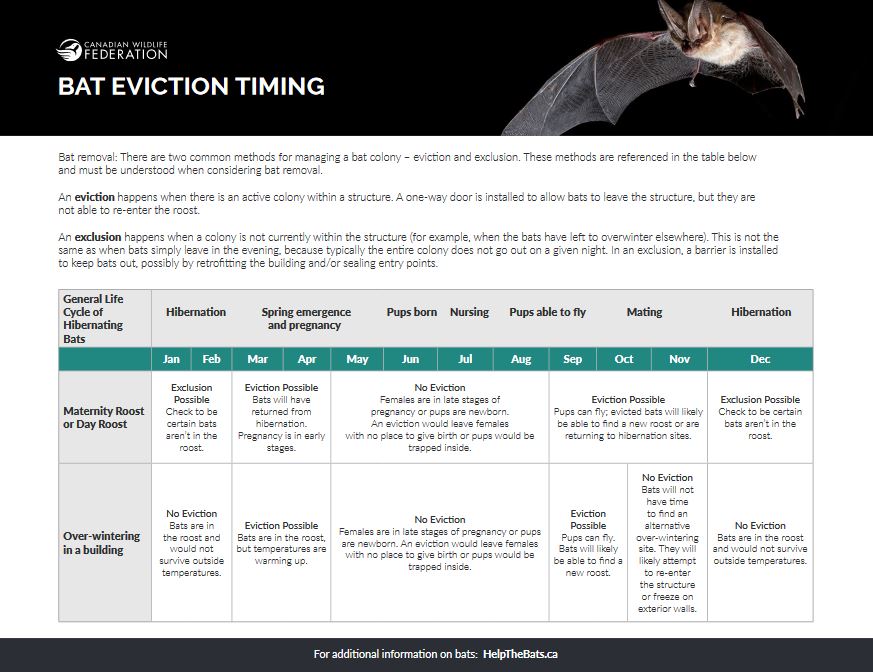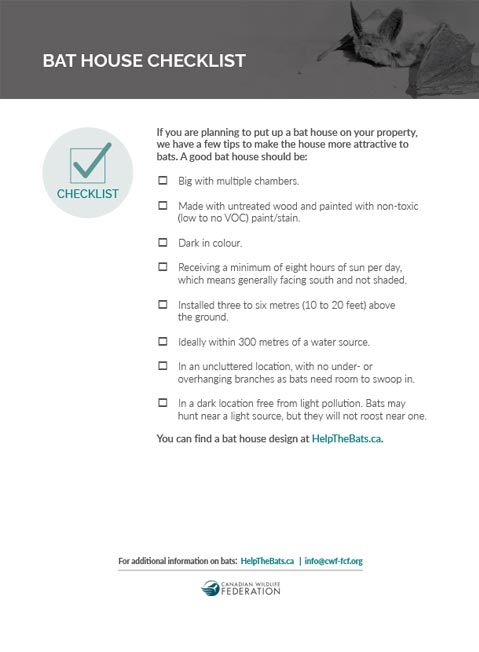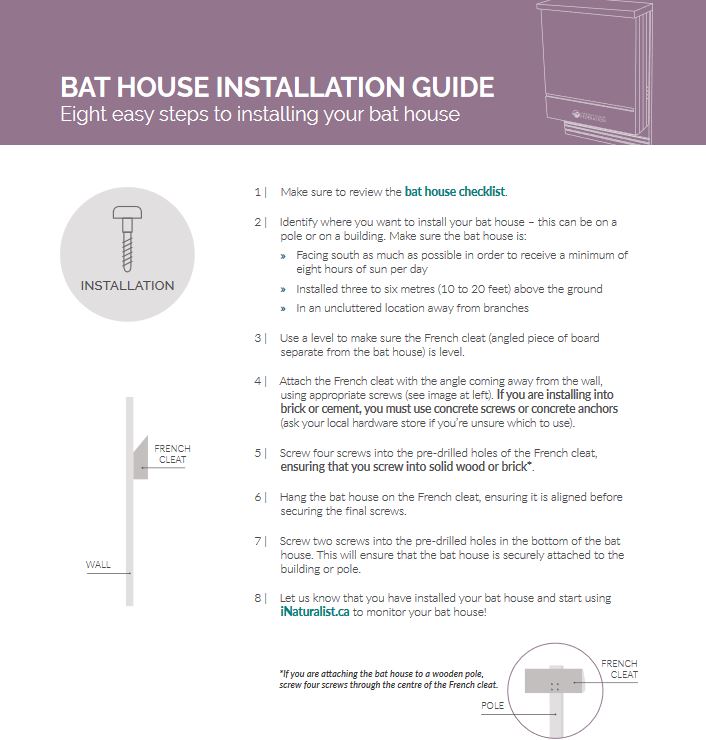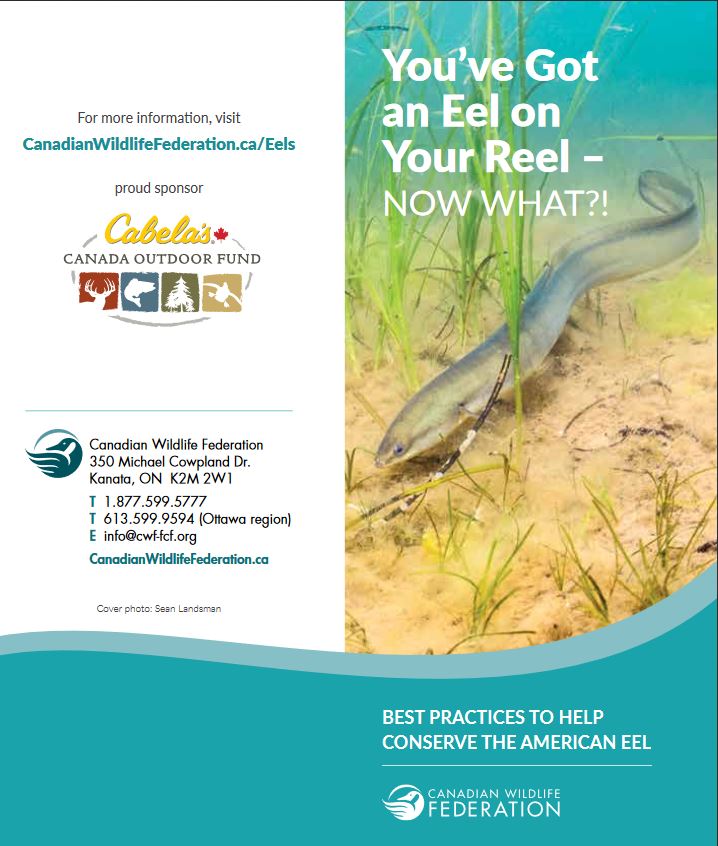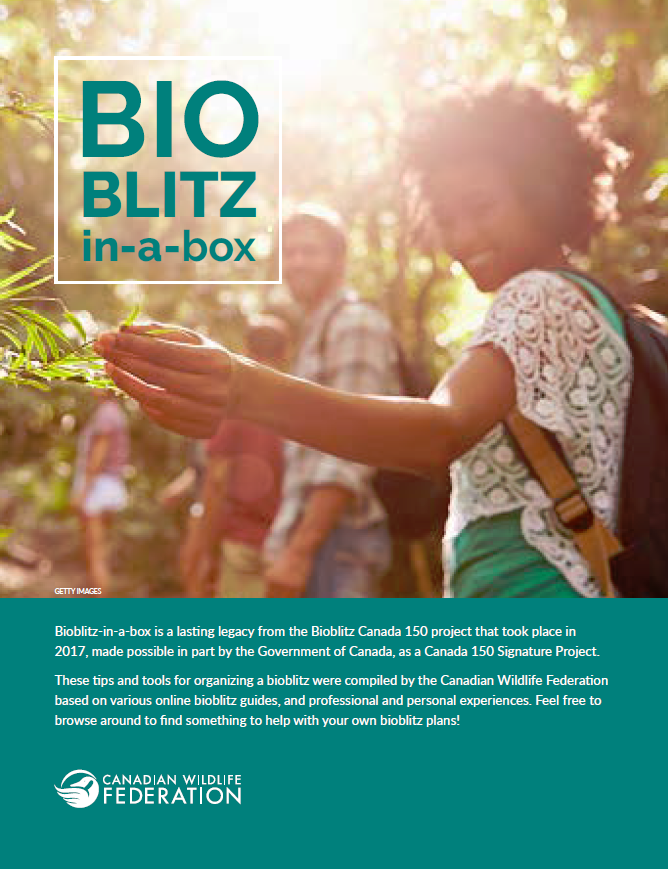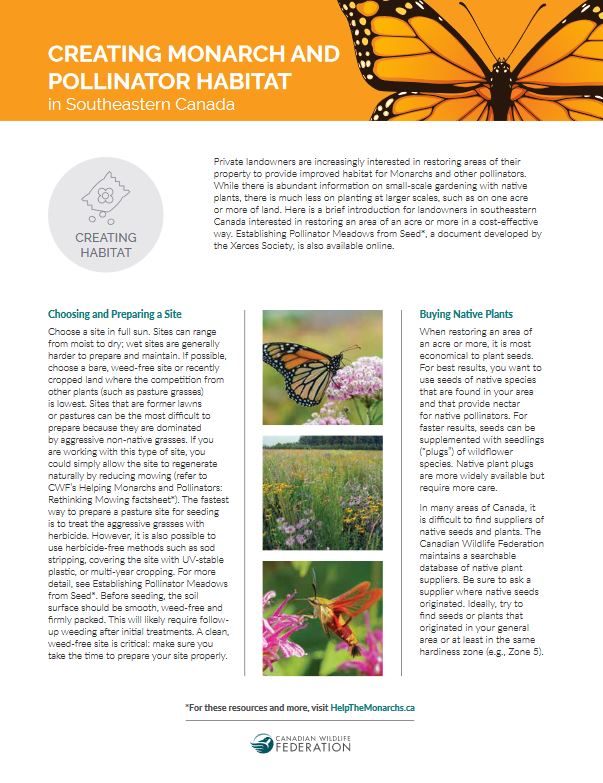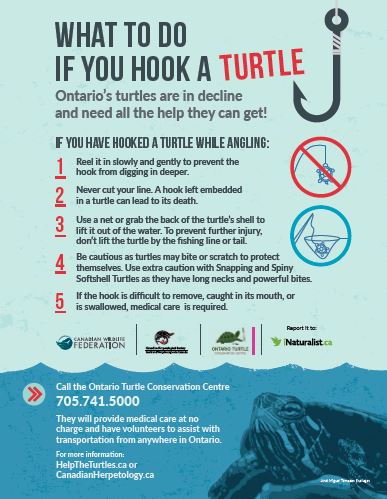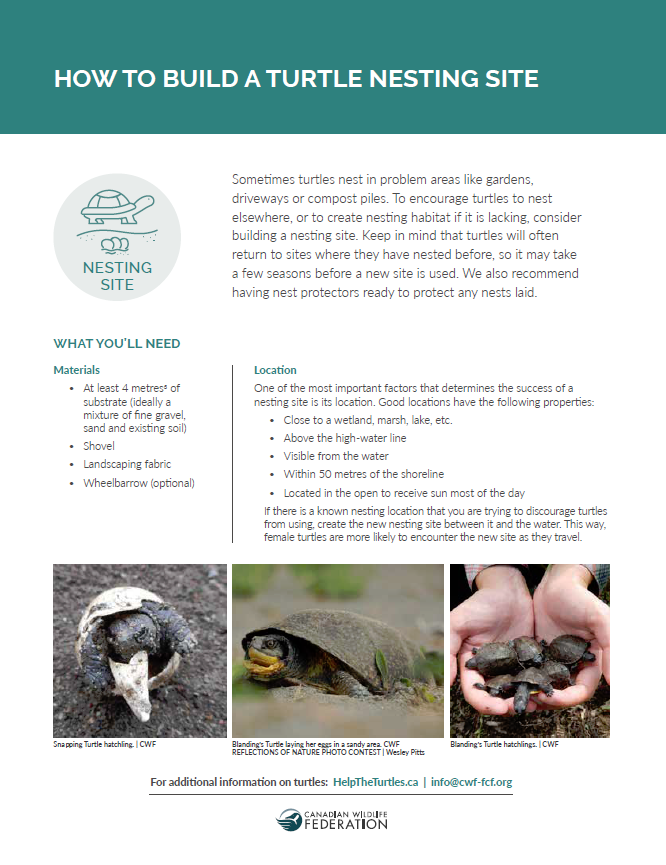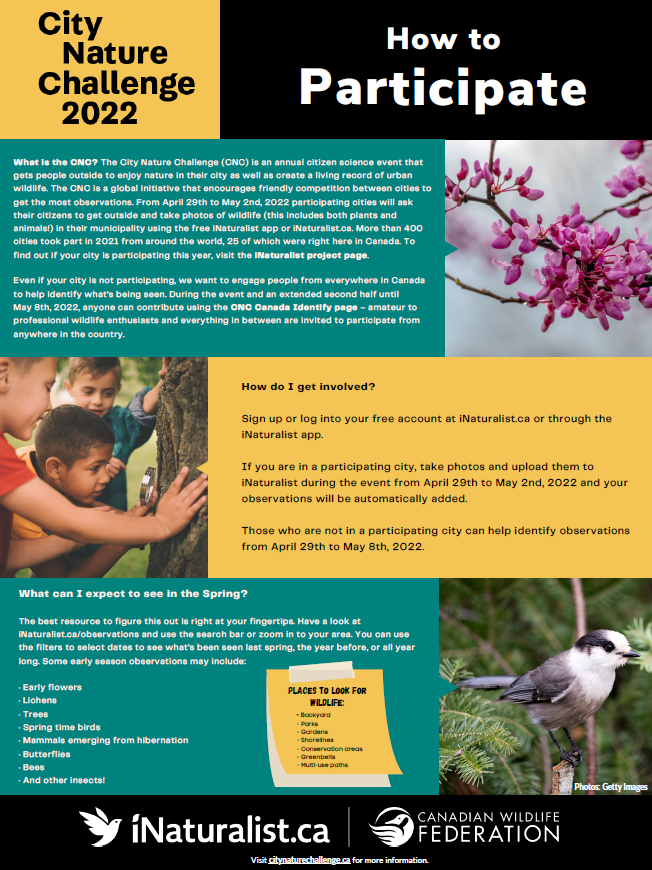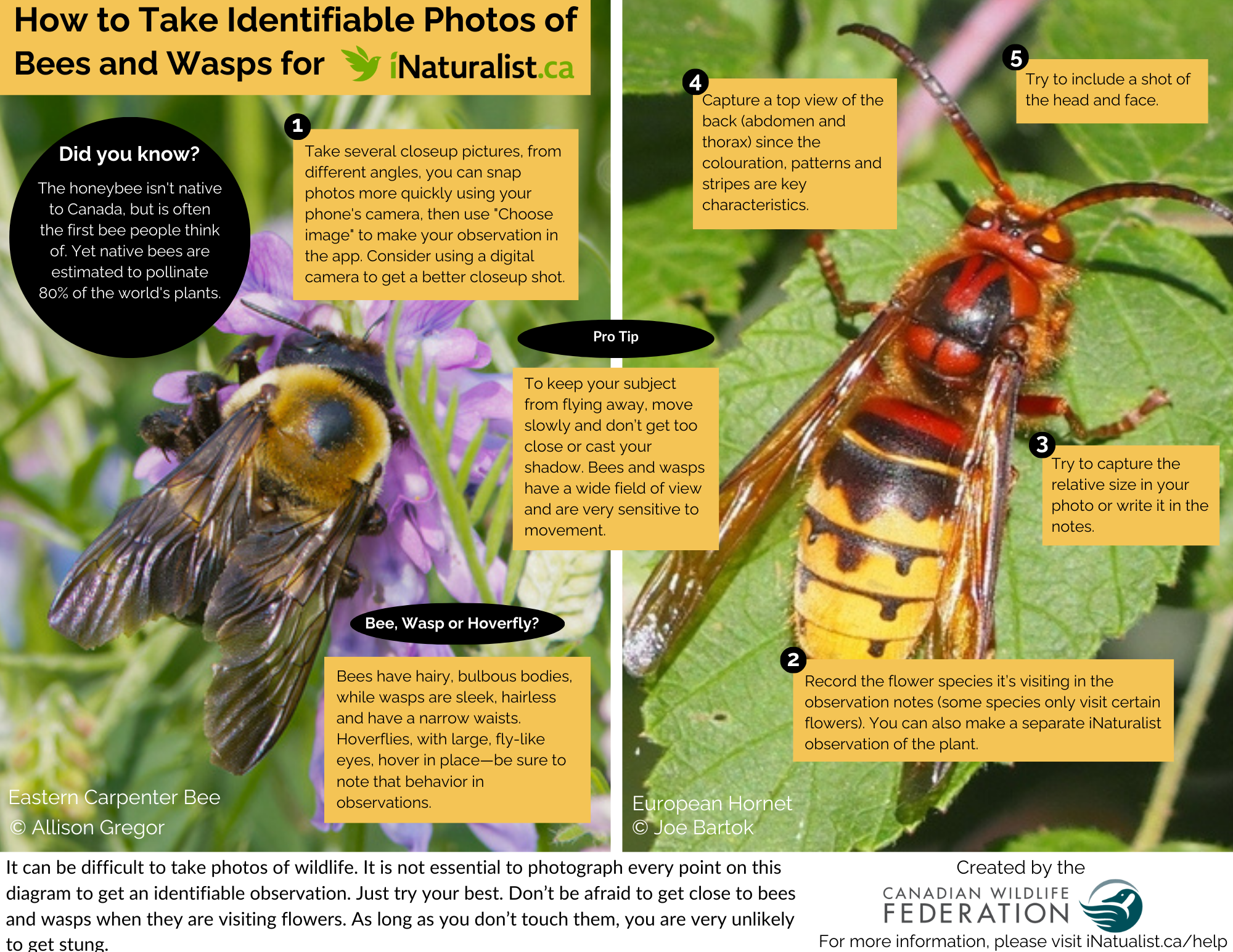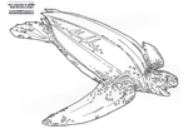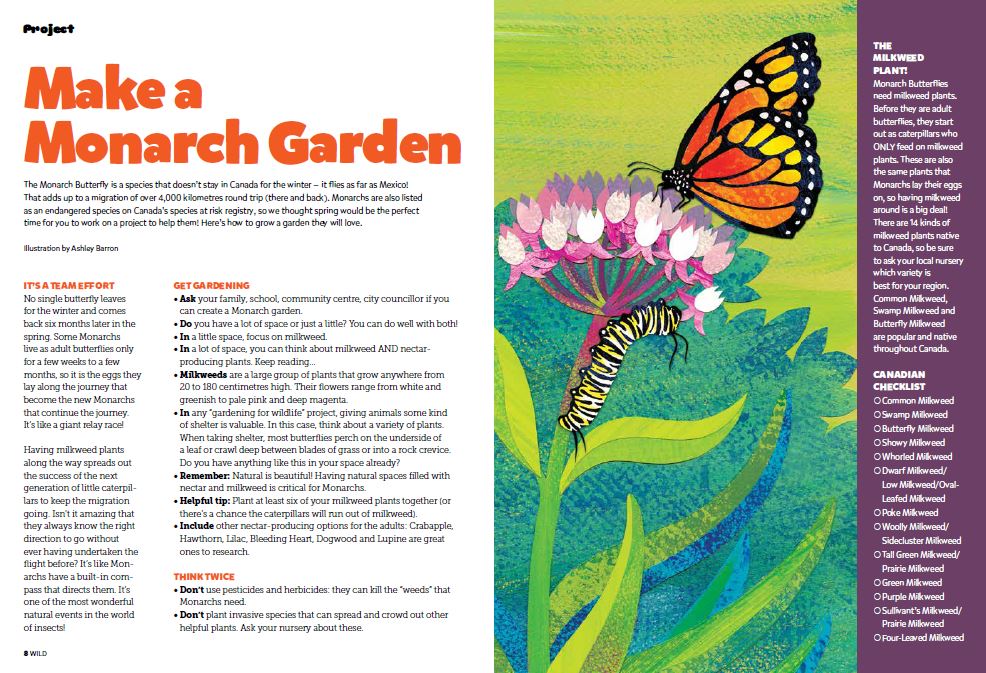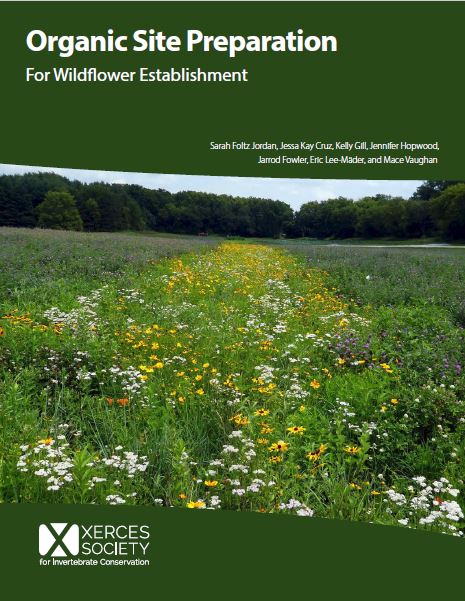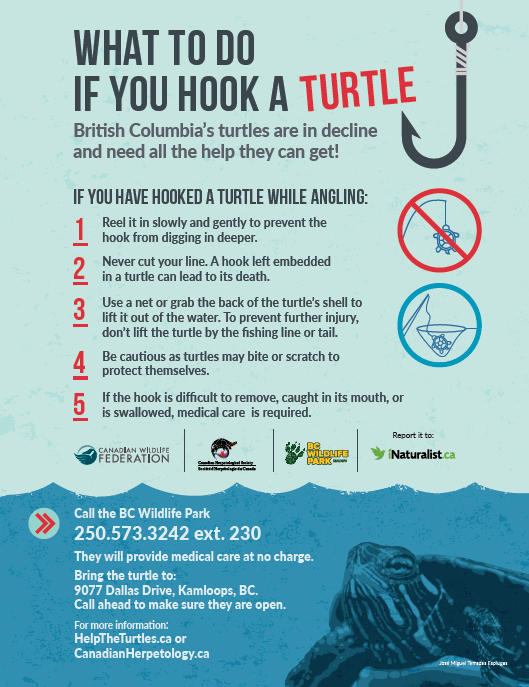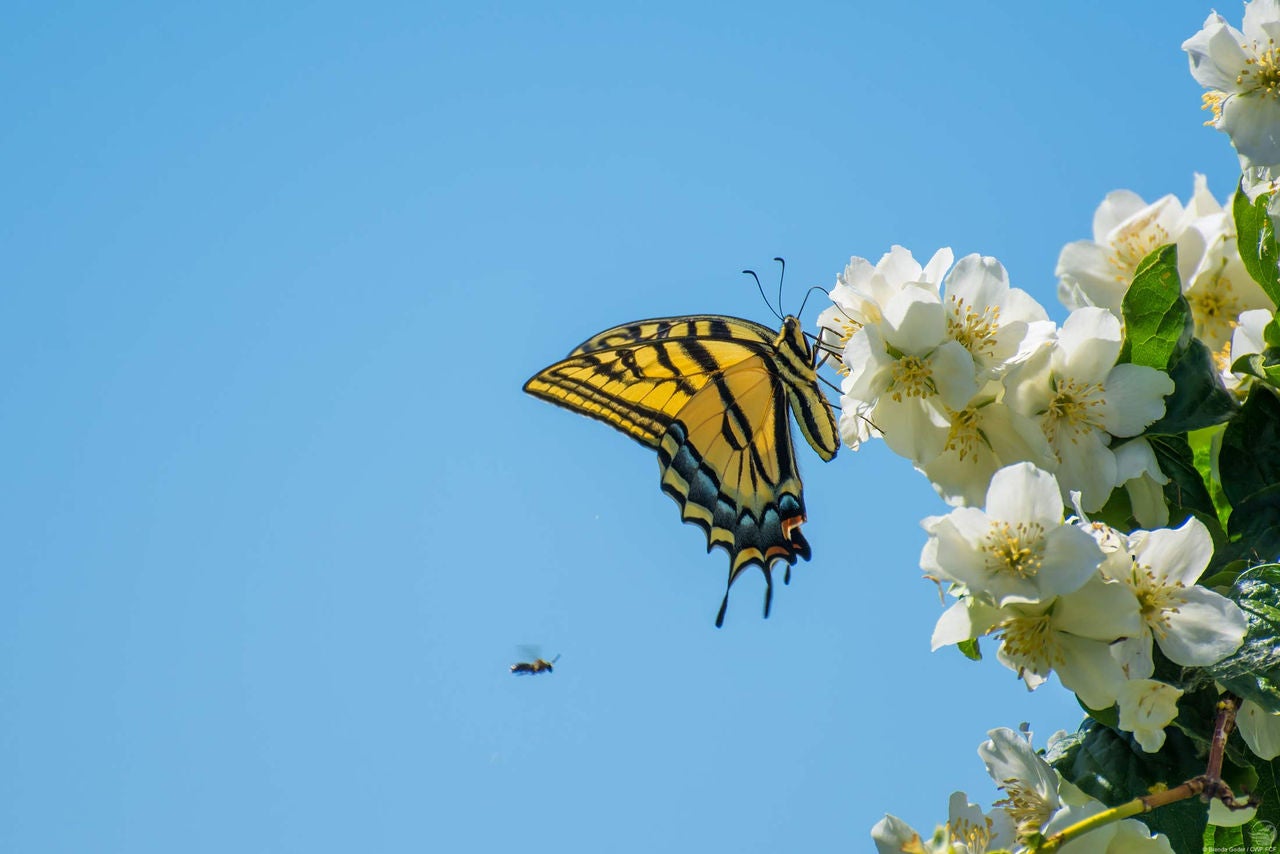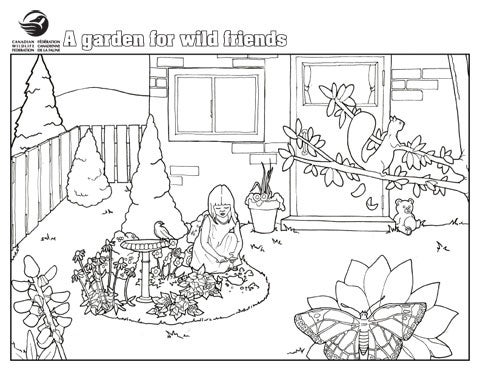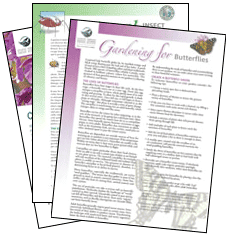From easy-to-use apps designed as tools for your citizen science projects to picturesque wallpaper images for your computer, CanadianWildlifeFederation.ca offers a variety of useful downloads for your PC and mobile devices.
-
About iNaturalist.ca
2021-03-01
Turn your next outing into a journey of scientific discovery. Download your free iNaturalist app at iNaturalist.ca and join a network of hundreds of thousands of people observing wildlife around the globe. Using a smartphone or digital camera, anyone can share sightings of flora and fauna and contribute to a growing record of biodiversity. It’s “citizen science” that’s fun, educational and impactful.
-
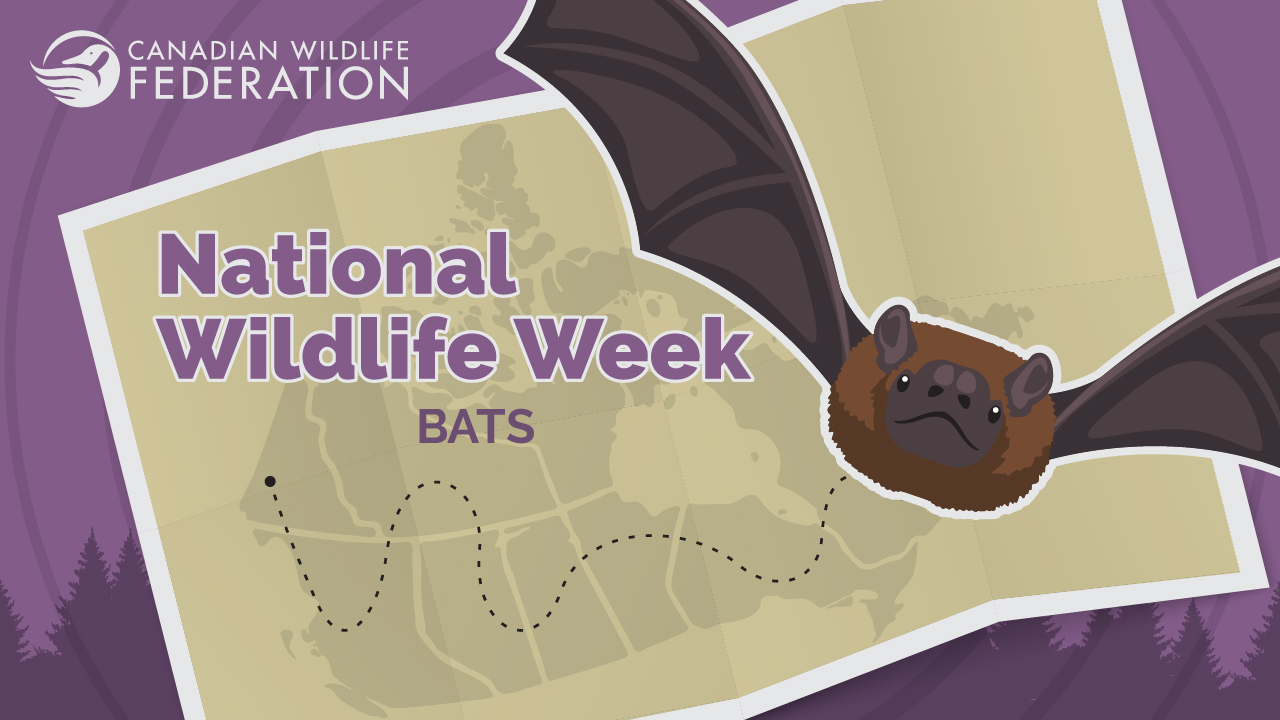
All About Bats With James Pagé!
2024-04-09
As Species-at-Risk & Biodiversity Program Officer with the Canadian Wildlife Federation (CWF), James has led initiatives on threatened and endangered species for more than ten years. He has provided advice on endangered species recovery to the federal government and currently heads up a variety of different species related projects at CWF, including tracking and protecting endangered bats. Join us as James sheds some light on these amazing nocturnal creatures and highlights ways we can “go to bat” for bats in our own communities!
-
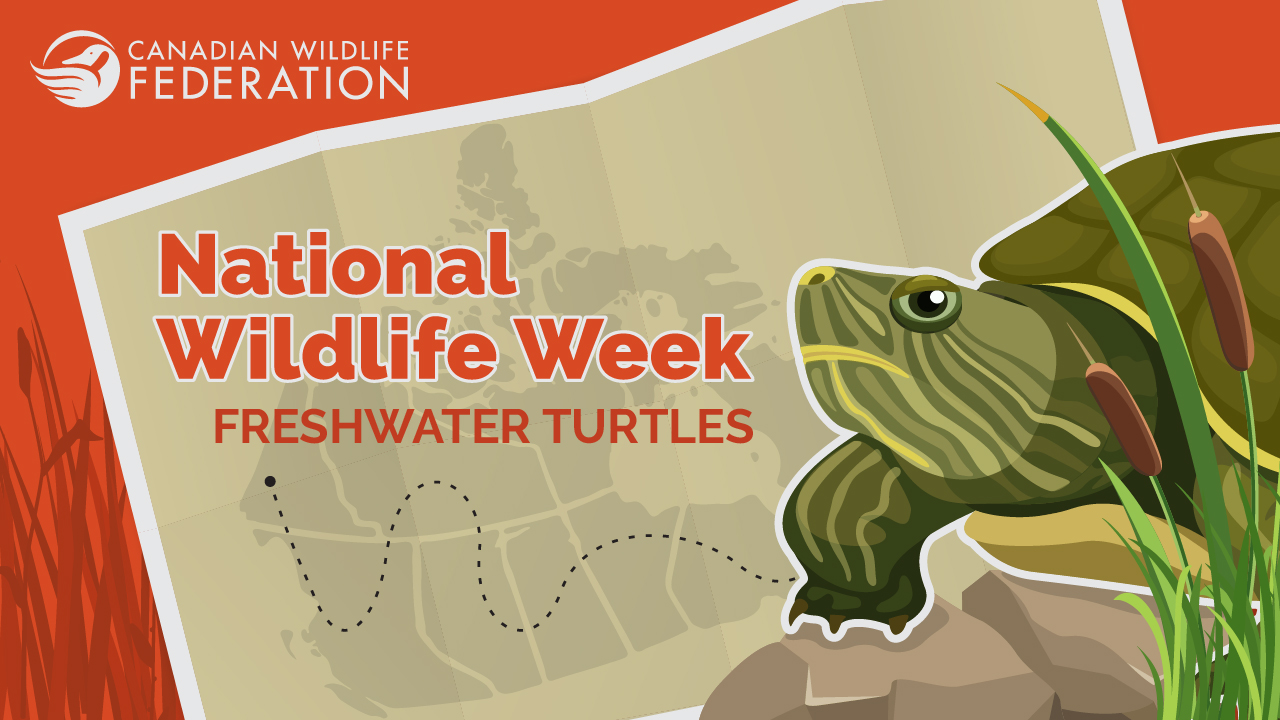
All About Freshwater Turtles With David Seburn
2024-04-11
David Seburn is a Turtle Specialist with the Canadian Wildlife Federation (CWF). When it comes to amphibian and reptile conservation, David Seburn is the “turtle” package! Working in this field for more than 20 years, he has written status reports, recovery strategies and more than a dozen scientific papers on amphibians and reptiles, radio-tracked turtles through swamps, and spoken to hundreds of people about turtle conservation. Join David to learn more about Canada’s at-risk freshwater turtle species, discover what CWF is doing to conserve turtles, and learn how you can help our reptilian friends!
-
American Eel Infographic
2022-02-28
How Industry-led Endangered Species Management is FAILING the American Eel in Ontario
-
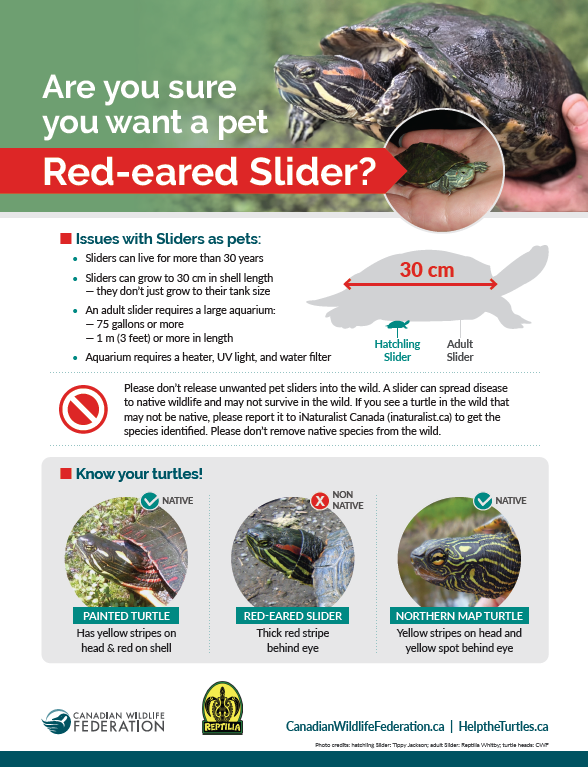
Are you sure you want a pet Red-eared Slider?
2025-12-05
Please don’t release unwanted pet sliders into the wild. A slider can spread disease to native wildlife and may not survive in the wild. If you see a turtle in the wild that may not be native, please report it to iNaturalist Canada (inaturalist.ca) to get the species identified. Please don’t remove native species from the wild.
-
Bat Eviction Timetable
2025-12-05
An eviction happens when there is an active colony within a structure. A one-way door is installed to allow bats to leave the structure, but they are not able to re-enter the roost.
-
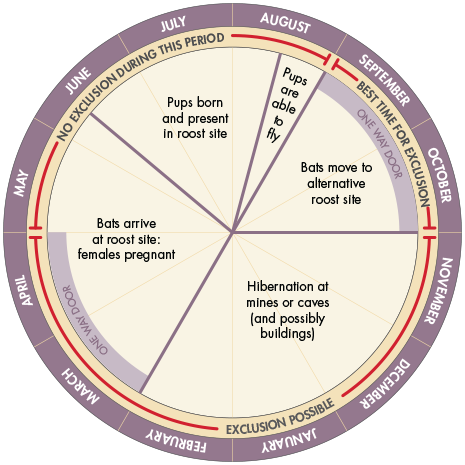
Bat Exclusion Calendar
2016-03-13
If you must exclude bats from your property, take a look at this calendar which outlines the most and least desirable times to do so.
-
-
-
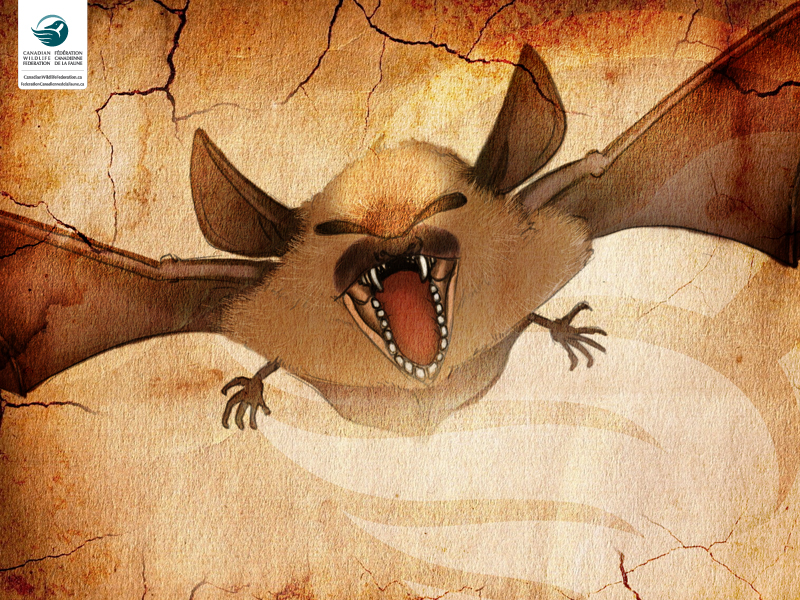
-
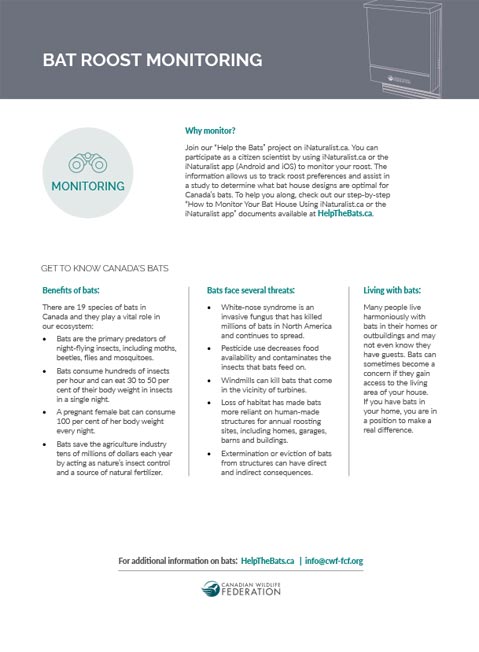
BAT ROOST MONITORING
2025-12-05
oin our “Help the Bats” project on iNaturalist.ca. You can participate as a citizen scientist by using iNaturalist.ca or the iNaturalist app (Android and iOS) to monitor your roost. The information allows us to track roost preferences and assist in a study to determine what bat house designs are optimal for Canada’s bats. To help you along, check out our step-by-step “How to Monitor Your Bat House Using iNaturalist.ca or the iNaturalist app” documents available at HelpTheBats.ca
-
BEST PRACTICES TO HELP CONSERVE THE AMERICAN EEL
2019-05-31
You’ve Got an Eel on Your Reel – NOW WHAT?!
-
Bioblitz in a Box
2021-09-24
Bioblitz-in-a-box is a lasting legacy from the Bioblitz Canada 150 project that took place in 2017, made possible in part by the Government of Canada, as a Canada 150 Signature Project. These tips and tools for organizing a bioblitz were compiled by the Canadian Wildlife Federation based on various online bioblitz guides, and professional and personal experiences. Feel free to browse around to find something to help with your own bioblitz plans!
-
-
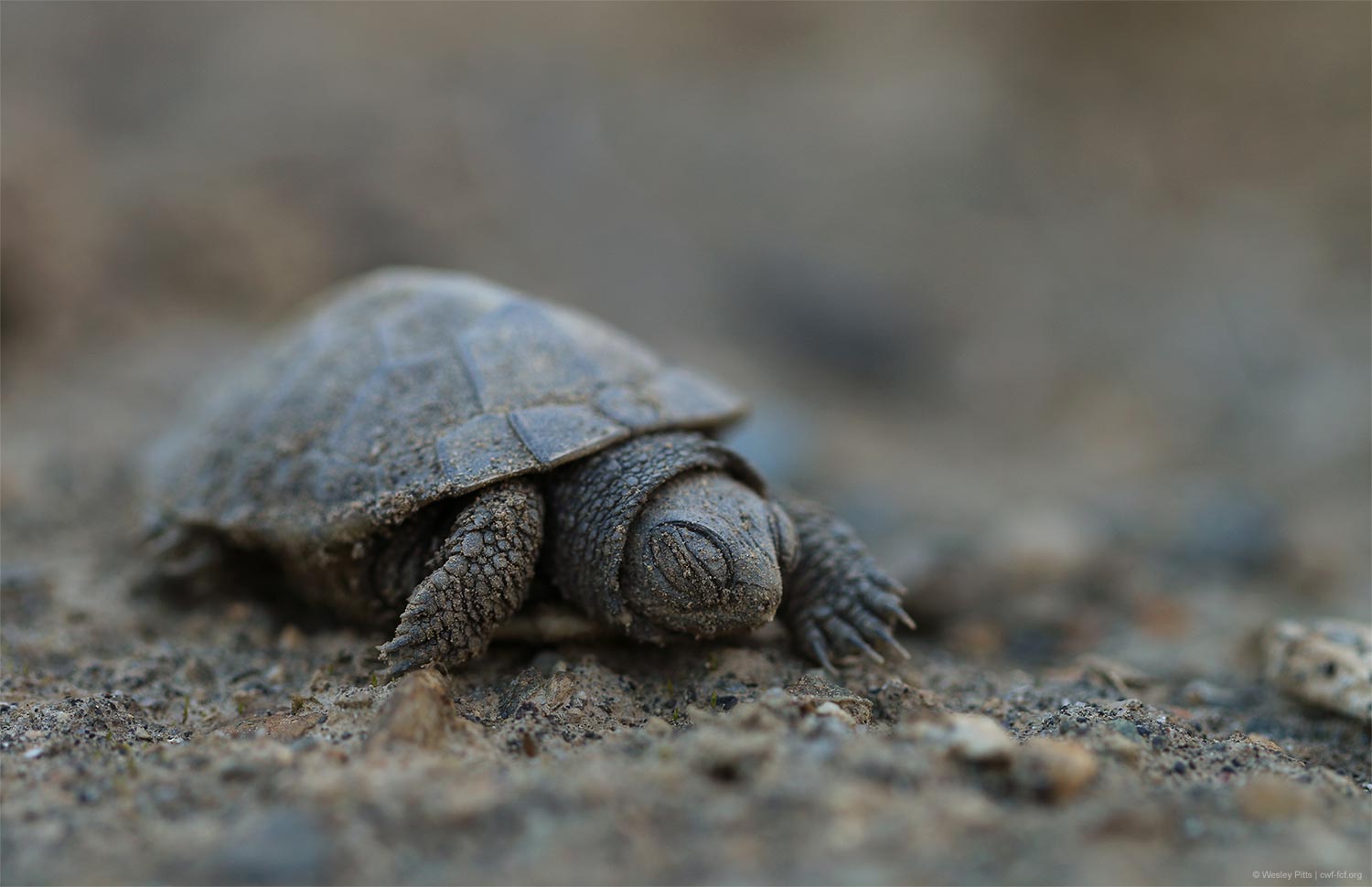
-
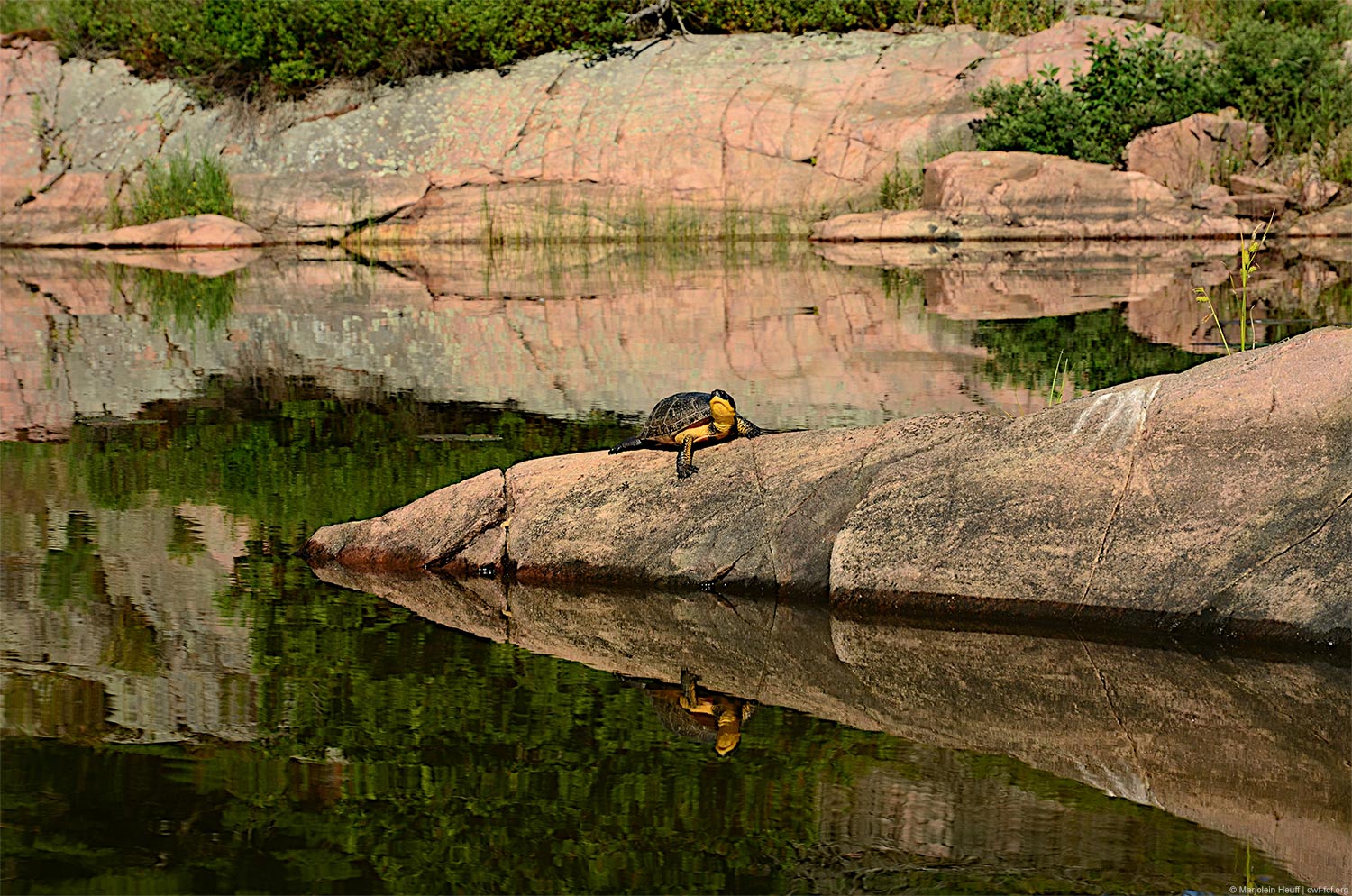
-
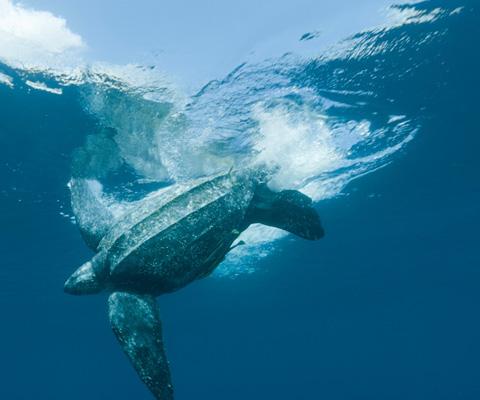
Canada's Turtles Webinar
2013-05-23
A leatherback turtle presentation by Dr. Sean Brilliant, Manager of Marine Programs for CWF, and Dr. Mike James, a marine turtle scientist with Fisheries and Oceans Canada. This webinar will focus on the lifecycle and ecology of Canadian leatherback turtles and the CWF Great Canadian Turtle Race.
-
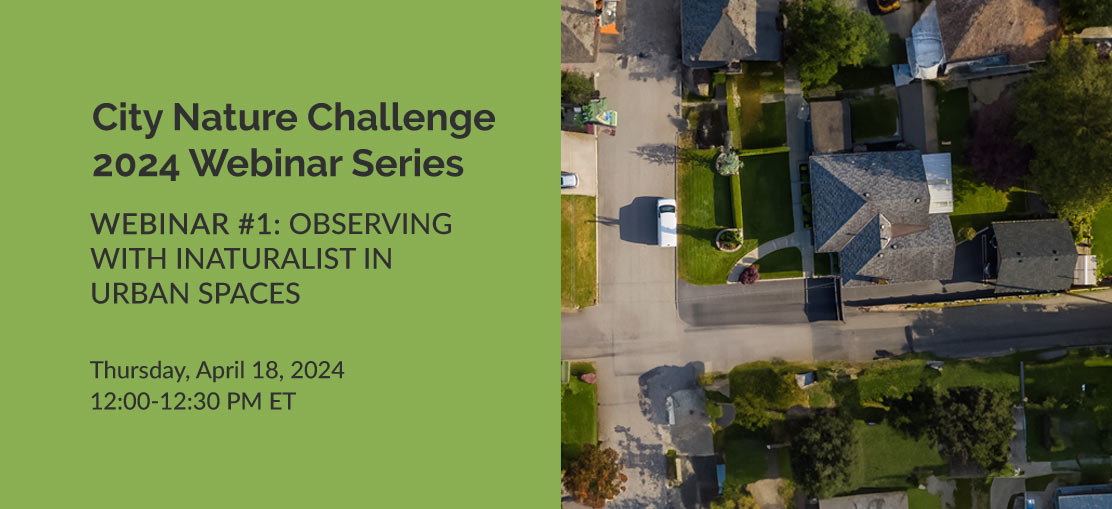
City Nature Challenge 2024 Webinar Series: #1 - Observing with iNaturalist in Urban Spaces
2024-04-18
Explore the vibrant biodiversity thriving in our urban landscapes during our City Focus webinar. Discover the diverse array of species, from plants to birds and mammals, that call the city home. Learn tips and techniques for capturing images to showcase the urban wildlife in the upcoming City Nature Challenge.
-
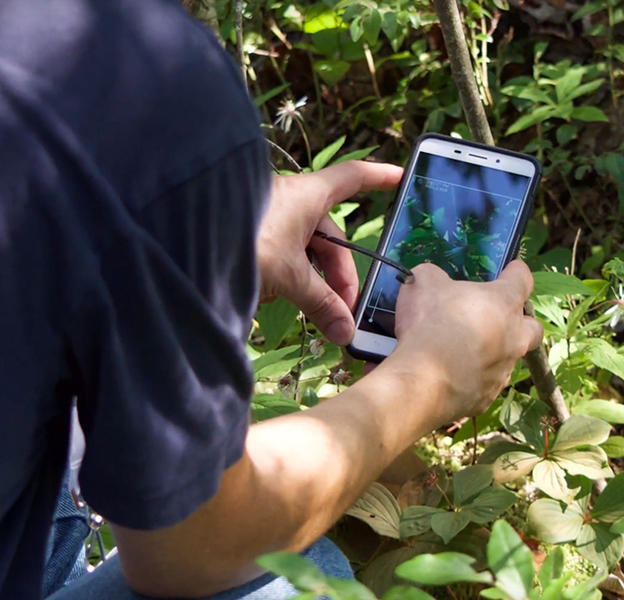
Contributing to a Global Biodiversity Database with iNaturalist Canada
2020-04-06
With the outbreak of COVID-19, the interconnection between people and nature has been brought to the forefront through increased awareness on the impacts we have on wildlife. Some areas in Canada may see an increase in visible wildlife while human activity is temporarily reduced. Whether this is a result of wildlife being more present or people are simply taking notice remains to be seen. You can help answer this question. Uploading photos of wildlife to iNaturalist.ca or using the free iNaturalist app will provide researchers with valuable information on where species are found during this time of decreased human presence on roads, in our towns and on trails. James Pagé, CWF Species At Risk and Biodiversity Specialist, will walk you through the ins and outs of using iNaturalist.ca and the iNaturalist app to record an observation as well as how to learn about what others are seeing around you during this time of isolation and physical distancing. Let’s stay connected with each other and nature.
-
Creating Monarch and Pollinator Habitat
2025-12-05
Private landowners are increasingly interested in restoring areas of their property to provide improved habitat for Monarchs and other pollinators. While there is abundant information on small-scale gardening with native plants, there is much less on planting at larger scales, such as on one acre or more of land. Here is a brief introduction for landowners in southeastern Canada interested in restoring an area of an acre or more in a cost-effective way. Establishing Pollinator Meadows from Seed*, a document developed by the Xerces Society, is also available online
-
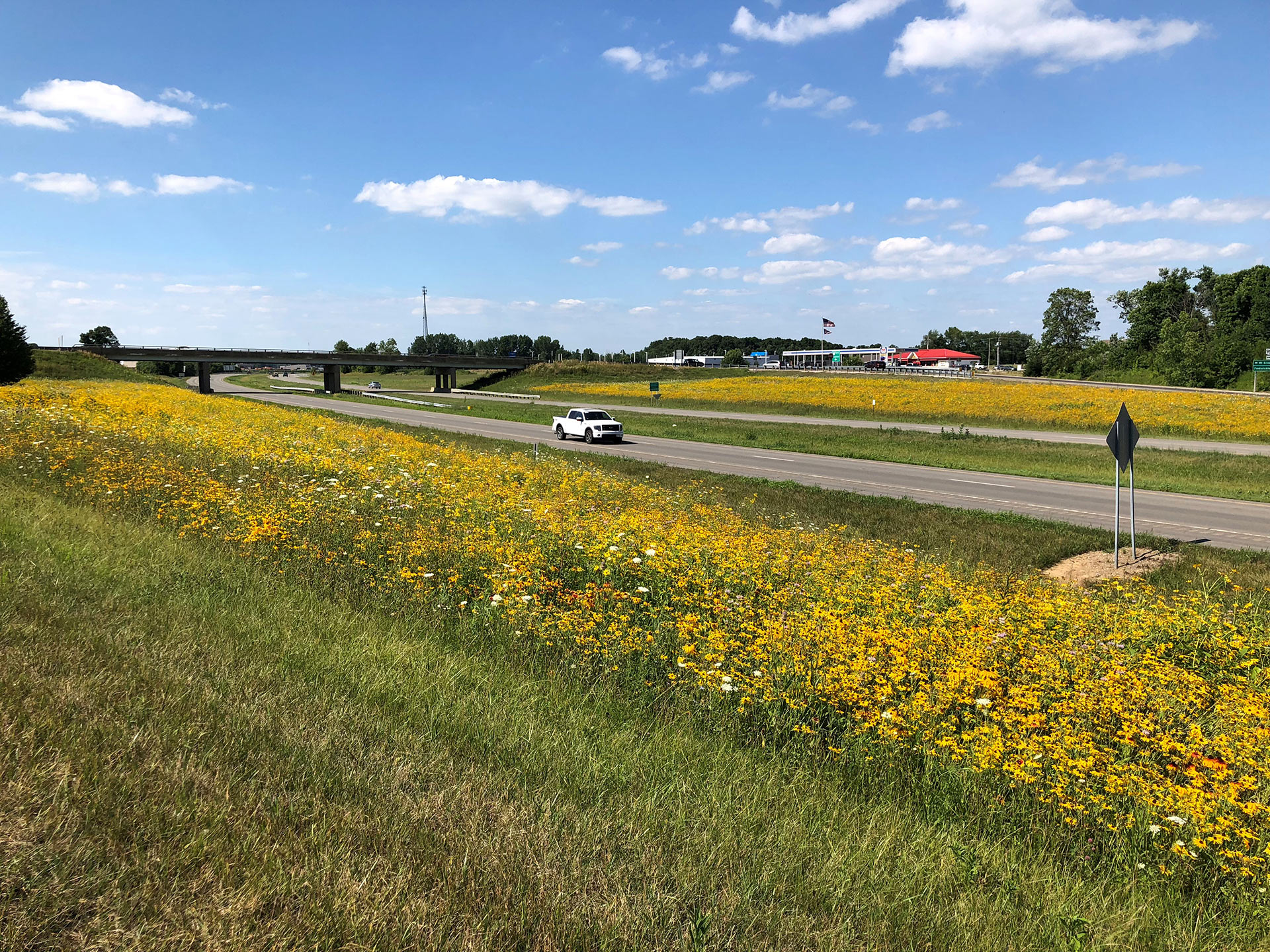
Creating Pollinator Habitat: Opportunities and Examples from Roadsides and other Right-of-Ways
2019-12-12
Pollinating insects are in crisis across North America, with steep declines in some groups. This introductory webinar in our 2019-2020 Pollinator Series will discuss the opportunities that transportation, utility and other corridors present to increase and improve available pollinator habitat across the landscape. Examples from all sectors will be discussed, and the highlights of CWF’s 2019 pilot project in eastern Ontario will be presented.
-
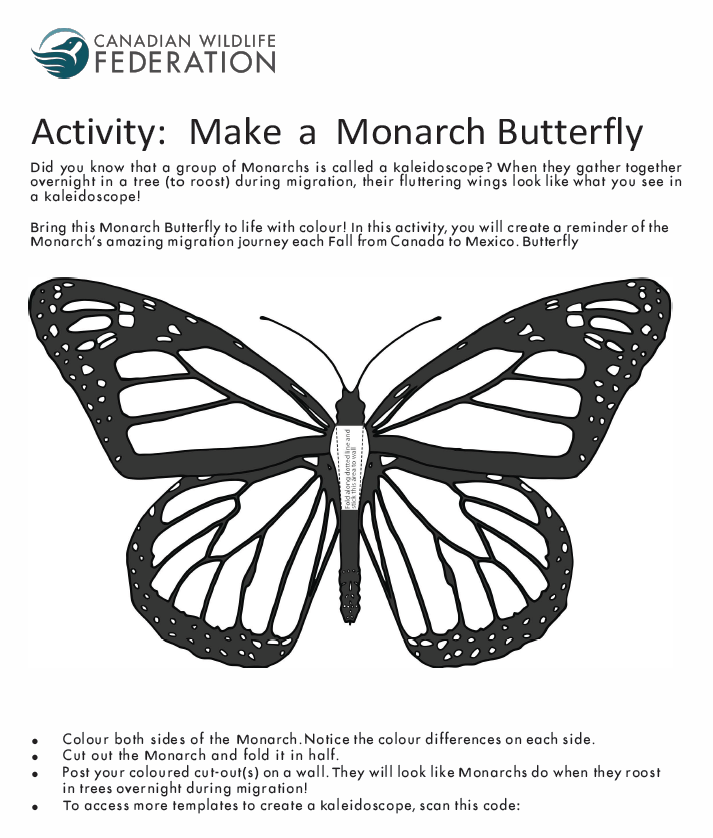
CWF Kaleidoscopes Monarch Colouring Page
2025-12-03
-
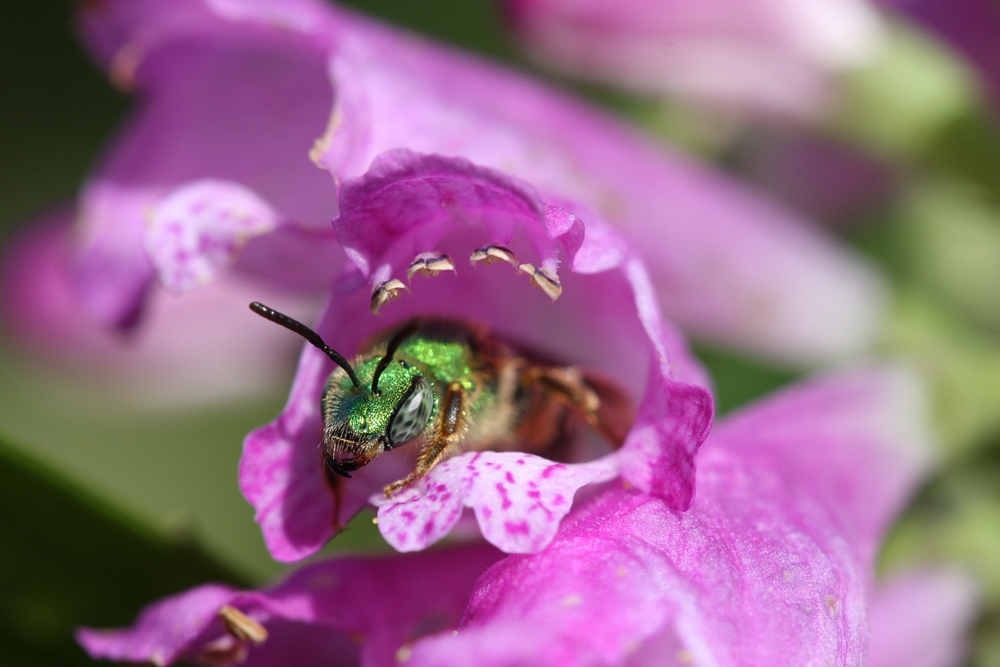
Discover Canada’s Native Bees (French Only)
2020-07-21
Join Cécile Antoine -PhD Candidate in Biology at UOttawa- on her journey to discover native bees that you may encounter in your gardens and parks around Ottawa, or the rest of the country. Cécile will share her passion by giving details on the biology and ecology of wild bees. She will also explain her research findings on bees that nest in the ground, which represent ¾ of the species, and is the focus of her studies. Learn more on how to support wild bees by attending this webinar!
-
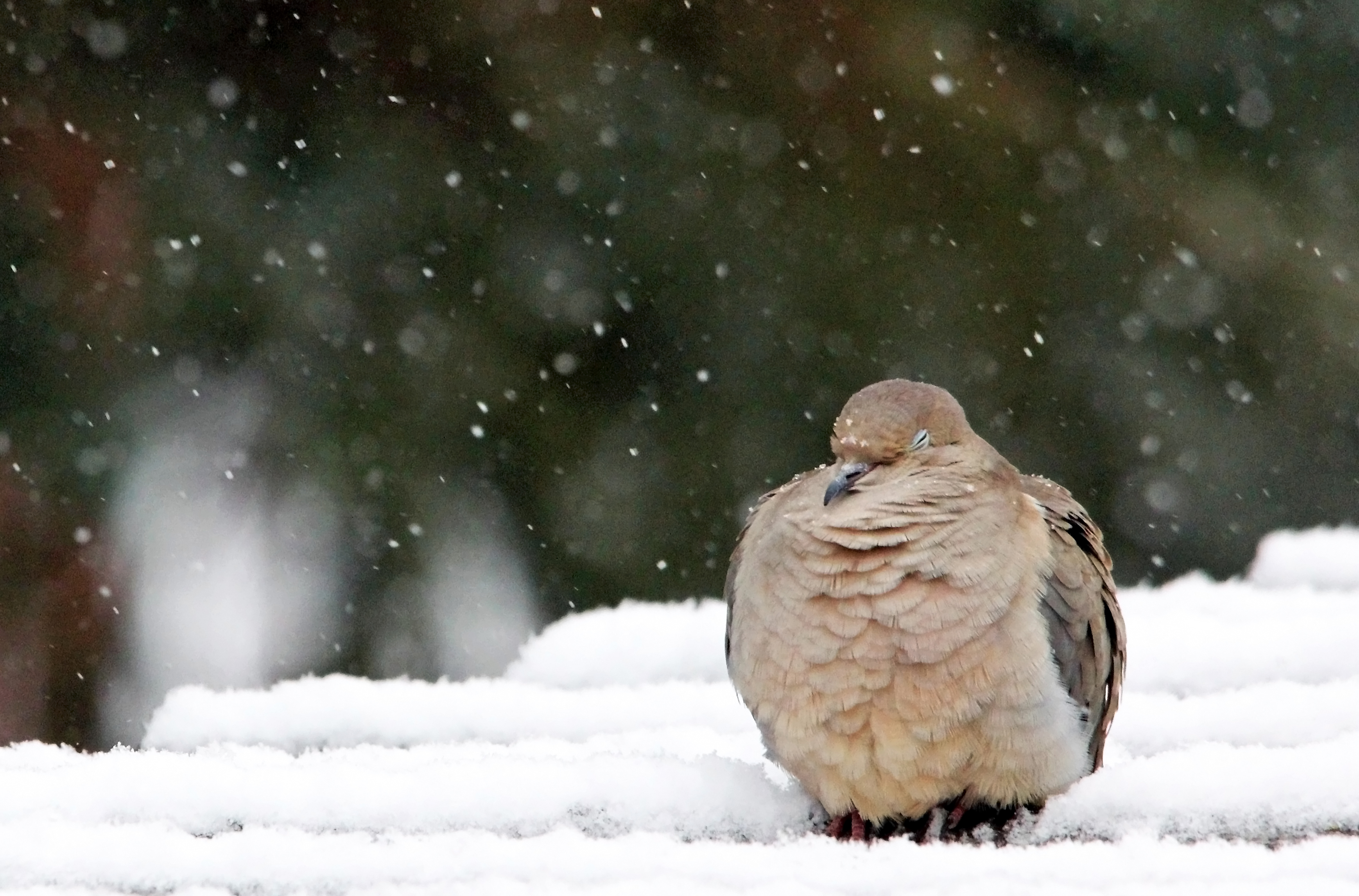
-
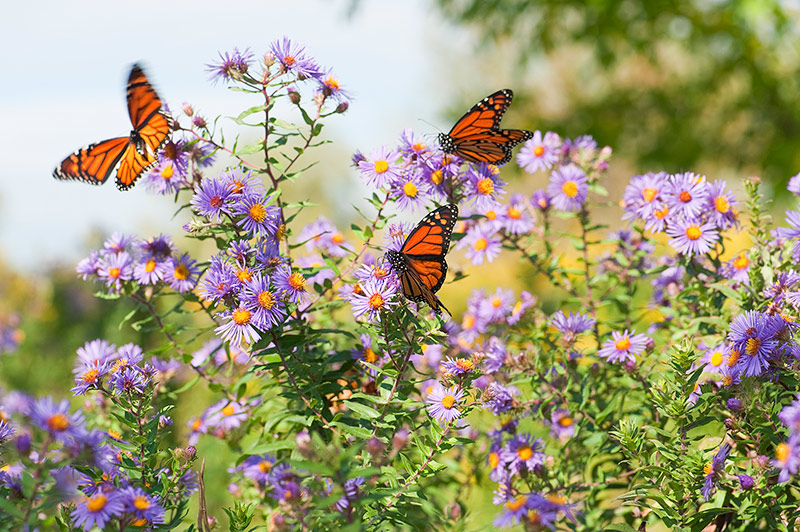
-
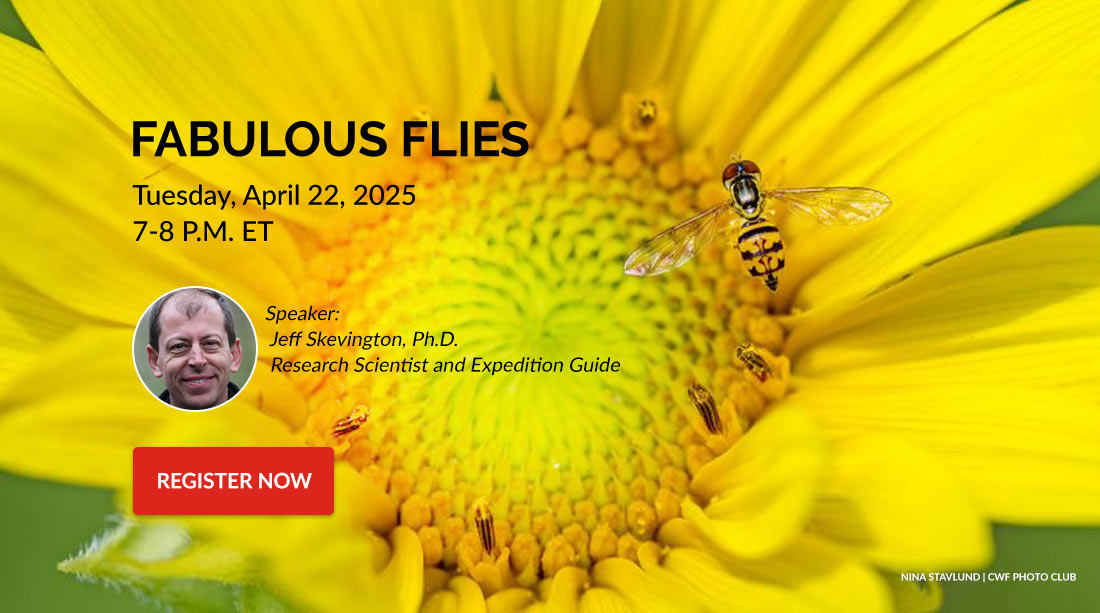
Fabulous Flies
2025-04-22
Join the Canadian Wildlife Federation on Tuesday, April 22 at 7:00 p.m. ET to discover the fascinating world of flies and their critical role on our planet. From pollination to pest control and decomposition services, flies are one of the most diverse and important groups on the planet. Our special guest presenter will be Jeff Skevington, Ph.D., a Research Scientist and Expedition Guide and co-author of a field guide on flower flies. Jeff will speak about fly biology, how they live and their many important ecosystem roles. He will also highlight some of the more easy-to-spot Canadian flies that may be in your yard. We hope you can join us!
-
Fishing Hooks Can Hurt or Kill Turtles
2019-05-31
Ontario’s turtles are in decline and need all the help they can get!
-
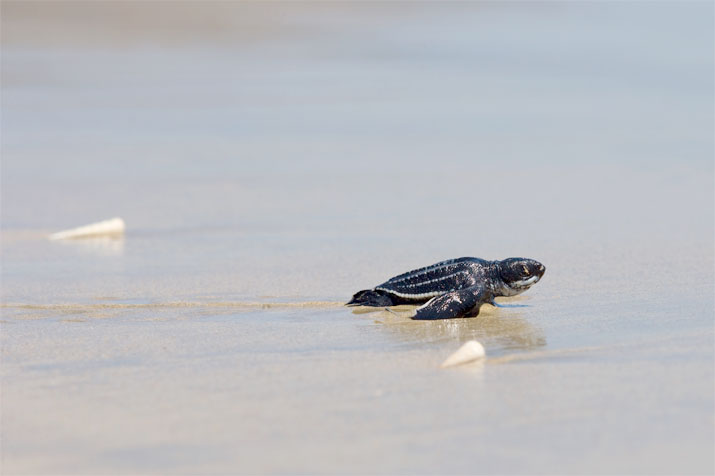
Following Leatherback Sea Turtles as they Migrate to their Southern Nesting Grounds
2016-02-28
A leatherback turtle presentation by Dr. Sean Brilliant, Manager of Marine Programs for CWF, and Kathleen James, Canadian Sea Turtle Network.
-
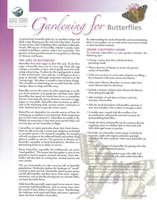
Gardening for Butterflies Handout
2025-12-05
Nearly 300 species of butterflies inhabit Canada, some cloaked in brilliant colours, others less noticeable. The presence of these graceful creatures in our gardens is a blessing of vibrancy and beauty.
-
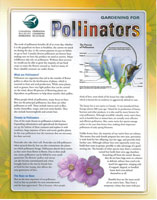
-

Going to Bat for Canada's Bats
2022-10-28
Are you afraid of bats? Many myths and misinformation exist about bats, but did you know they play a vital role in helping control insect populations? Join the Canadian Wildlife Federation just in time for Halloween as we shed some light on this amazing nocturnal creature, and highlight how you can "go to bat” for bats in your own school or community! Don't forget to come dressed as your favourite creepy crawley!
-
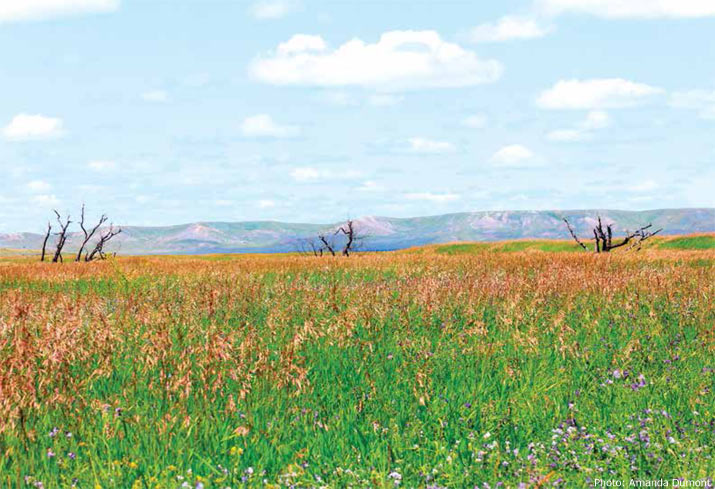
-
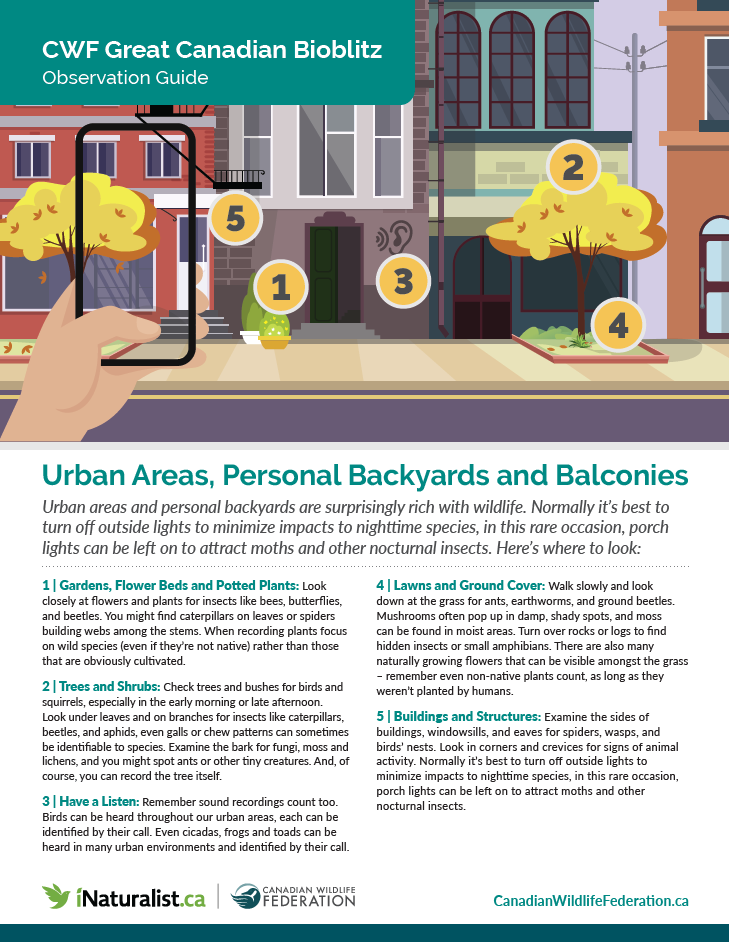
Great Canadian Bioblitz Observation Guide
2025-12-03
-

-
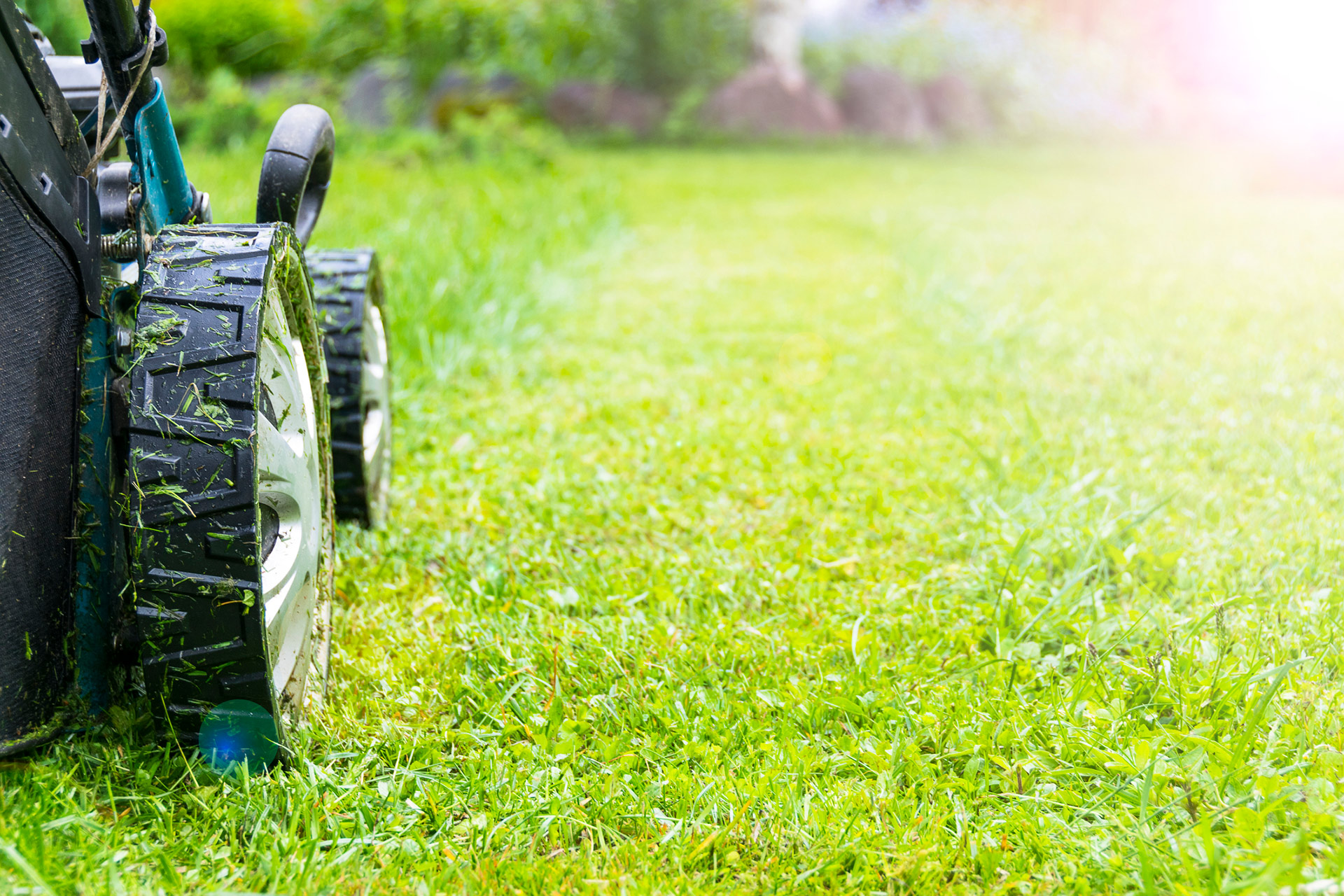
Helping Monarchs and Pollinators: Rethinking Mowing
2019-05-07
Pollinators are a priority resource concern for many conservationists and farmers. The Xerces Society conducted field trials throughout the Easter, Midwestern and Western United States to inform best practices.
-
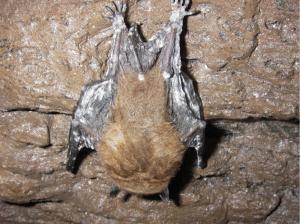
Help the Bats
2014-10-23
-
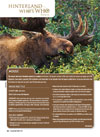
Hinterland Who's Who Fact Sheets
2025-12-05
Check out the facts for amphibians and reptiles, birds, fish, mollusks, insects, pollinators and mammals! We’ve even got information specific to species at risk, the boreal forest species, and species affected by climate change! So why not learn a little bit more about these Canadian creatures
-
-
How To Build a Turtle Nesting Site
2025-12-05
Sometimes turtles nest in problem areas like gardens, driveways or compost piles. To encourage turtles to nest elsewhere, or to create nesting habitat if it is lacking, consider building a nesting site. Keep in mind that turtles will often return to sites where they have nested before, so it may take a few seasons before a new site is used. We also recommend having nest protectors ready to protect any nests laid.
-
How to Participate in the City Nature Challenge
2025-12-05
What is the CNC? The City Nature Challenge (CNC) is an annual citizen science event thatgets people outside to enjoy nature in their city as well as create a living record of urbanwildlife. The CNC is a global initiative that encourages friendly competition between cities toget the most observations. From April 29th to May 2nd, 2022 participating cities will asktheir citizens to get outside and take photos of wildlife (this includes both plants andanimals!) in their municipality using the free iNaturalist app or iNaturalist.ca. More than 400cities took part in 2021 from around the world, 25 of which were right here in Canada. Tofind out if your city is participating this year, visit the iNaturalist project page .
-
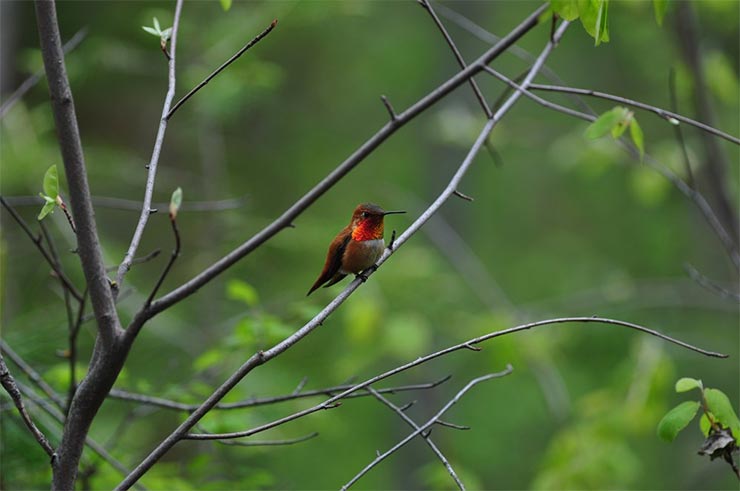
Hummingbird Migration Webinar
2015-04-09
-
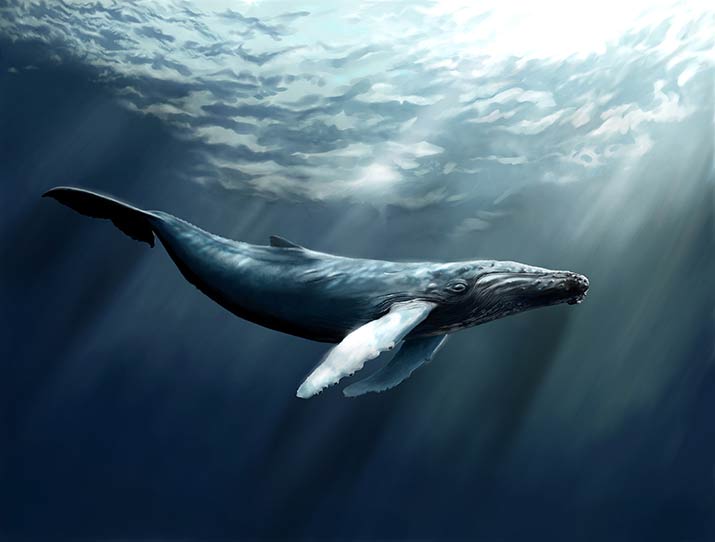
-
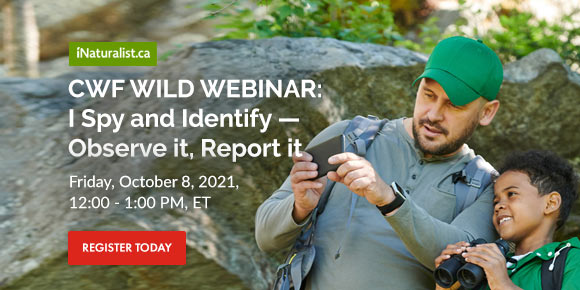
iNaturalist Canada Webinar Series: I Spy and Identify — Observe it, Report it
2021-10-08
Join us Friday, October 8, 12:00-1:00 p.m. ET. iNaturalist has become one of the world’s most popular nature apps and the Canadian Wildlife Federation has led the charge in bringing it to Canada. Join the Canadian Wildlife Federation for a webinar with the Canadian Council on Invasive Species (CCIS) to learn how you can help track and report invasive species across Canada through the national I Spy and Identify project and how uploading your observations of nature can have a real-life impact on biodiversity in Canada. Presenter: Kellie Sherman, Operations Supervisor at CCIS.
-
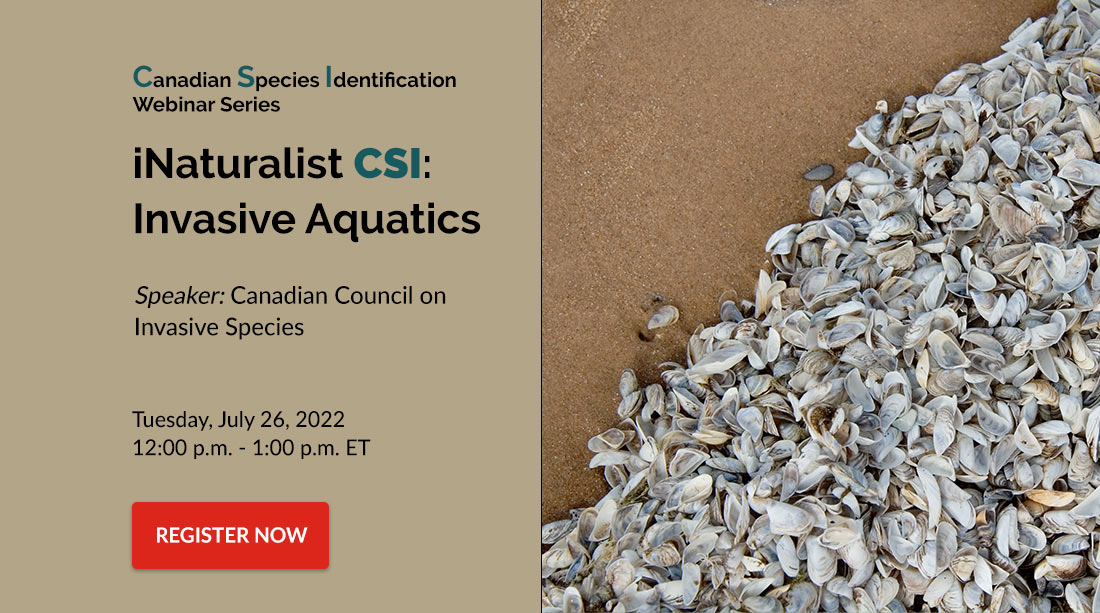
iNaturalist CSI: Invasive Aquatics
2022-07-26
Join the Canadian Wildlife Federation (CWF) July 26th, 12:00-1:00 Eastern for a webinar on how to photograph and identify Canada’s top 10 invasive aquatics using iNaturalist.ca, presented by the Canadian Council on Invasive Species (CCIS). Nearly one-fifth of the Earth’s surface is at risk of plant and animal invasions. Invasive species are threatening Canada’s ecosystems, economy and communities. Climate change is also exacerbating this issue and can make ecosystems more vulnerable to invasive species, and invasive species can worsen the impacts of climate change. The good news is - you can help! Learn how to ID Canada’s top 10 invasive aquatics so you can report them, helping to stop their spread. Every report helps scientists track and protect Canada’s natural spaces and biodiversity from the negative impacts of invasive species. iNaturalist has become one of the world’s most popular nature apps and the Canadian Wildlife Federation has led the charge in bringing it to the forefront of Canadian citizen science.
-
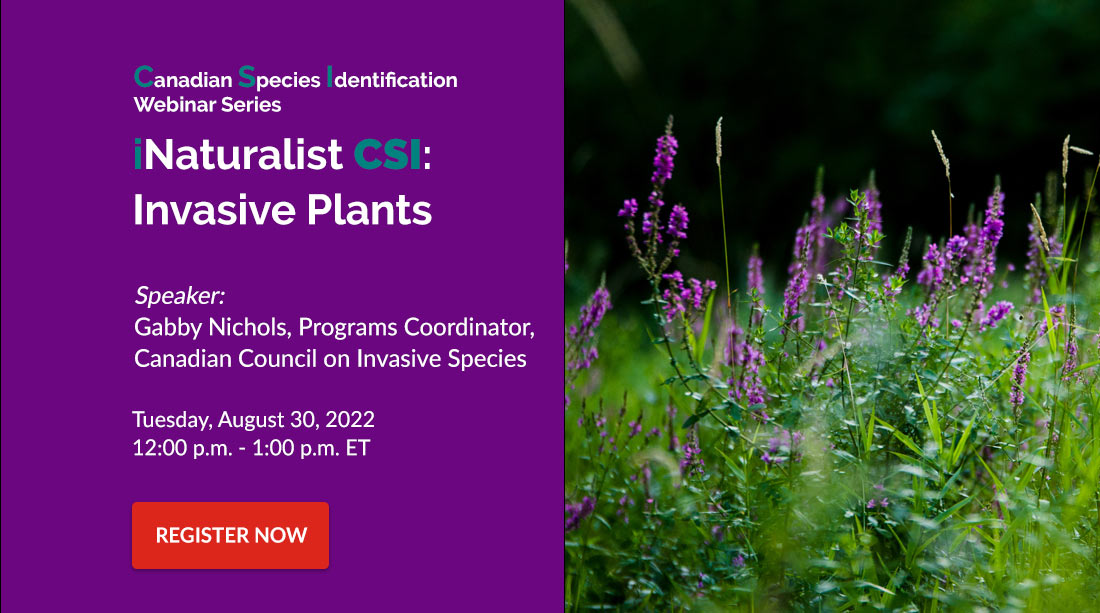
iNaturalist CSI: Invasive Plants
2022-08-30
Join the Canadian Wildlife Federation (CWF) for a webinar on how to photograph and identify Canada’s top 10 invasive plants using iNaturalist.ca, presented by the Canadian Council on Invasive Species (CCIS). Nearly one-fifth of the Earth’s surface is at risk of plant and animal invasions. Invasive species are threatening Canada’s ecosystems, economy and communities. Climate change is also exacerbating this issue and can make ecosystems more vulnerable to invasive species, and invasive species can worsen the impacts of climate change. The good news is - you can help! Learn how to ID Canada’s top 10 invasive plants so you can report them, helping to stop their spread. Every report helps scientists track and protect Canada’s natural spaces and biodiversity from the negative impacts of invasive species. iNaturalist has become one of the world’s most popular nature apps and the Canadian Wildlife Federation has led the charge in bringing it to the forefront of Canadian citizen science. Date: August 30th, 12:00-1:00 Eastern
-
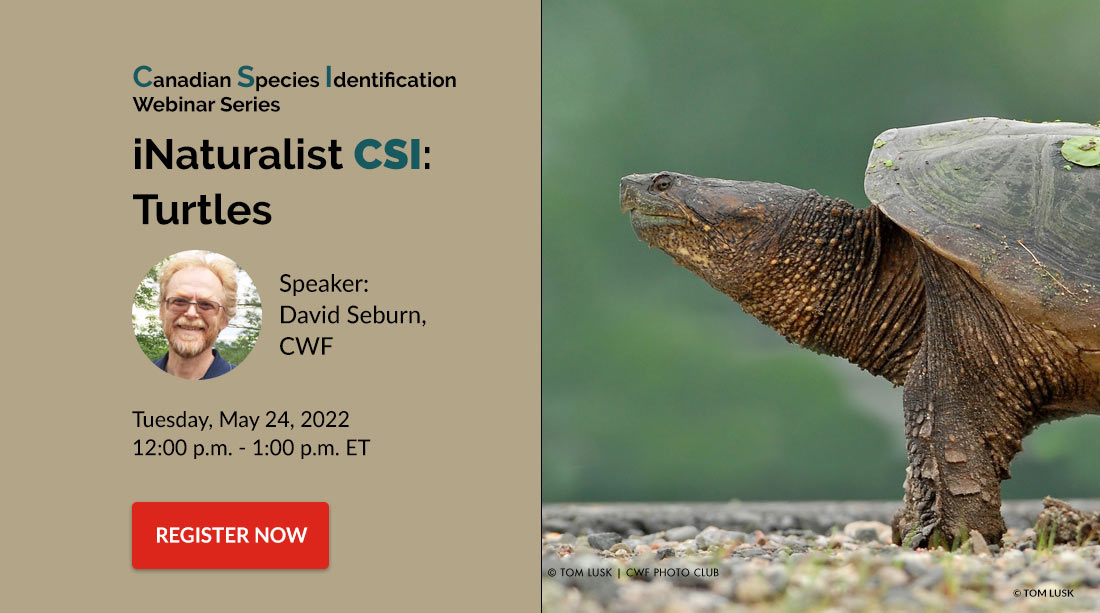
iNaturalist CSI: Turtles
2022-05-24
Join the Canadian Wildlife Federation (CWF) for a webinar in our Canadian Species Identification Webinar Series, demonstrating how to photograph and identify turtles using iNaturalist Canada, with CWF’s very own turtle expert David Seburn in English and CWF’s Annie Belair in French. Freshwater turtles are in decline throughout Canada. CWF’s HelpTheTurtles.ca initiative is working to change this but we need your help! Knowing where turtles are found is an important first step to fixing the problem. Tallying everyone's observations will help us target which roads we need to look at for mitigation measures and which wetlands we need to keep an eye on. By uploading your turtle sightings to iNaturalist.ca, you can directly contribute to turtle conservation. iNaturalist has become one of the world’s most popular nature apps and the Canadian Wildlife Federation has led the charge in bringing it to the forefront of Canadian citizen science. CWF is carrying out our own surveys on roads and in wetlands for at-risk turtles and working with Scales Nature Park, but we can't be everywhere. Your information is critical so we can work with municipalities and transport agencies to reduce the risks to turtles. Learn how to identify turtle species and take identifiable photos of turtles to help us, help them! English Webinar Date: May 24, 2022, 12:00-1:00 ET French Webinar Date: May 26, 2022, 12:00-1:00 ET
-
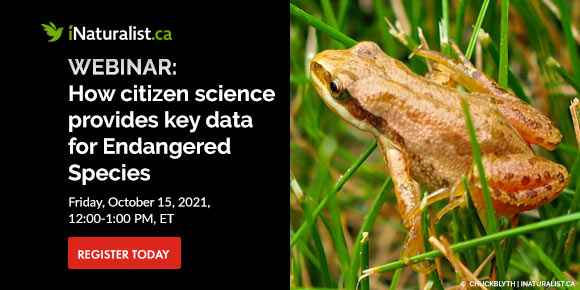
iNaturalist Webinar Series: How citizen science provides key data for Endangered Species
2021-10-15
iNaturalist has become one of the world’s most popular nature apps and the Canadian Wildlife Federation has led the charge in bringing it to Canada. Join us for an insightful webinar with the Committee on the Status of Endangered Wildlife in Canada (COSEWIC) on how iNaturalist can provide key information to help inform the assessment and conservation of endangered species in Canada. Leading the session will be John Reynolds, Chair of COSEWIC as well as Ecology Professor at Simon Fraser University, where he will discuss how citizen science greatly helps in the conservation of nature here in Canada.
-

International Monarch Monitoring Blitz Webinar
2024-08-01
Join us on August 1st, 2024, at noon Eastern Time for an engaging webinar on the International Monarch Monitoring Blitz. The Canadian Wildlife Federation (CWF) and the Commission for Environmental Cooperation will shed light on this incredible tri-national initiative aimed at protecting the endangered monarch butterfly. Discover how you can participate in this vital effort through iNaturalist in Canada, learn about the latest conservation strategies, and find out how you can make a difference in saving this iconic species. Whether you join us live or watch the recording later, this webinar offers valuable insights into the collaborative efforts to conserve monarch butterflies.
-

Into the Bat Cave: The Mysterious World of Bats and Bat Research
2023-10-25
As Halloween approaches bats are often depicted as terrors of the night. But the real threat is that bat populations are in steep declines in Canada… and humans are mostly to blame. Bats are much more terrorized by us than we are by them. Join CWF’s Bat Researcher Bailey Bedard to lean about the different Canadian bat species, the amazing abilities they have and the benefits they provide humans and the ecosystem. You will also be able to find out more about CWF’s bat research and how humans, while the primary threat to bats, can also be part of the solution to helping them recover. Date, Time, Time Zone:Wednesday October 25, 6 pm Eastern Time Host: Bailey Bedard, Bat Researcher, James Pagé Species at risk and Biodiversity Specialist, Emily Becker, Bat Researcher
-

Invasive Species: Something Fishy in Canada’s Lakes & Rivers
2020-05-16
Grades 2-9, Science, Animals, Environmental Stewardship Join the Canadian Wildlife Federation (CWF) and the Centre for Global Education as we investigate what's happening in Canadian rivers and oceans. Our conversation will cover the roles of different species, how invasive species impacts local ecology, and what we can do to better support at-risk habitats.
-
-
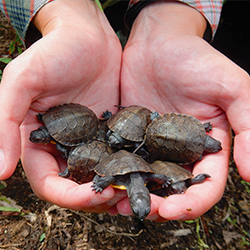
Let's Talk Turtles
2022-05-18
How to help Canada’s At Risk Turtle Populations: Turtles are a vital part of healthy ecosystems. Although they have been around for millions of years, today, all eight of Canada’s freshwater turtles have been designated as Species at Risk. This webinar will discuss why turtles are in danger, how you can make a difference, and how turtles are culturally significant to Indigenous Peoples of North America.
-
Make a Monarch Butterfly Garden
2020-04-01
The Monarch Butterfly is a species that doesn’t stay in Canada for the winter — it flies as far as Mexico! That adds up to a migration of over 4,000 kilometres round trip (there and back). Monarchs are also listed as an endangered species on Canada’s species at risk registry, so we thought spring would be the perfect time for you to work on a project to help them! Here’s how to grow a garden they will love.
-

Managing Rural Roadsides for Pollinator Habitat
2020-03-10
Lanark County Lanark County is a rural municipality in eastern Ontario – to the west of Ottawa, Ontario – managing approximately 600 kilometres of county roads. Since 2016, Lanark County has followed an integrated vegetation management (IVM) plan to control invasive plants, especially wild parsnip, that encroach on pollinator habitat. In addition to controlling invasive plants, the goal of the IVM plan was also to re-establish desirable native vegetation along roadsides. To achieve these goals, Lanark County changed mowing practices, implemented integrated control measures to reduce impact to desirable vegetation (i.e. targeted spot spraying, hand control of invasives, reseeding disturbed sites, etc.), and improved hydroseeding practices with native seed to promote pollinators. Lanark County has been successful in reducing invasive plant infestations and improving pollinator habitat on almost 450 hectares of rural roads, and now has the opportunity to share some lessons learned with other municipalities about how they can help improve pollinator habitat along roadsides.
-
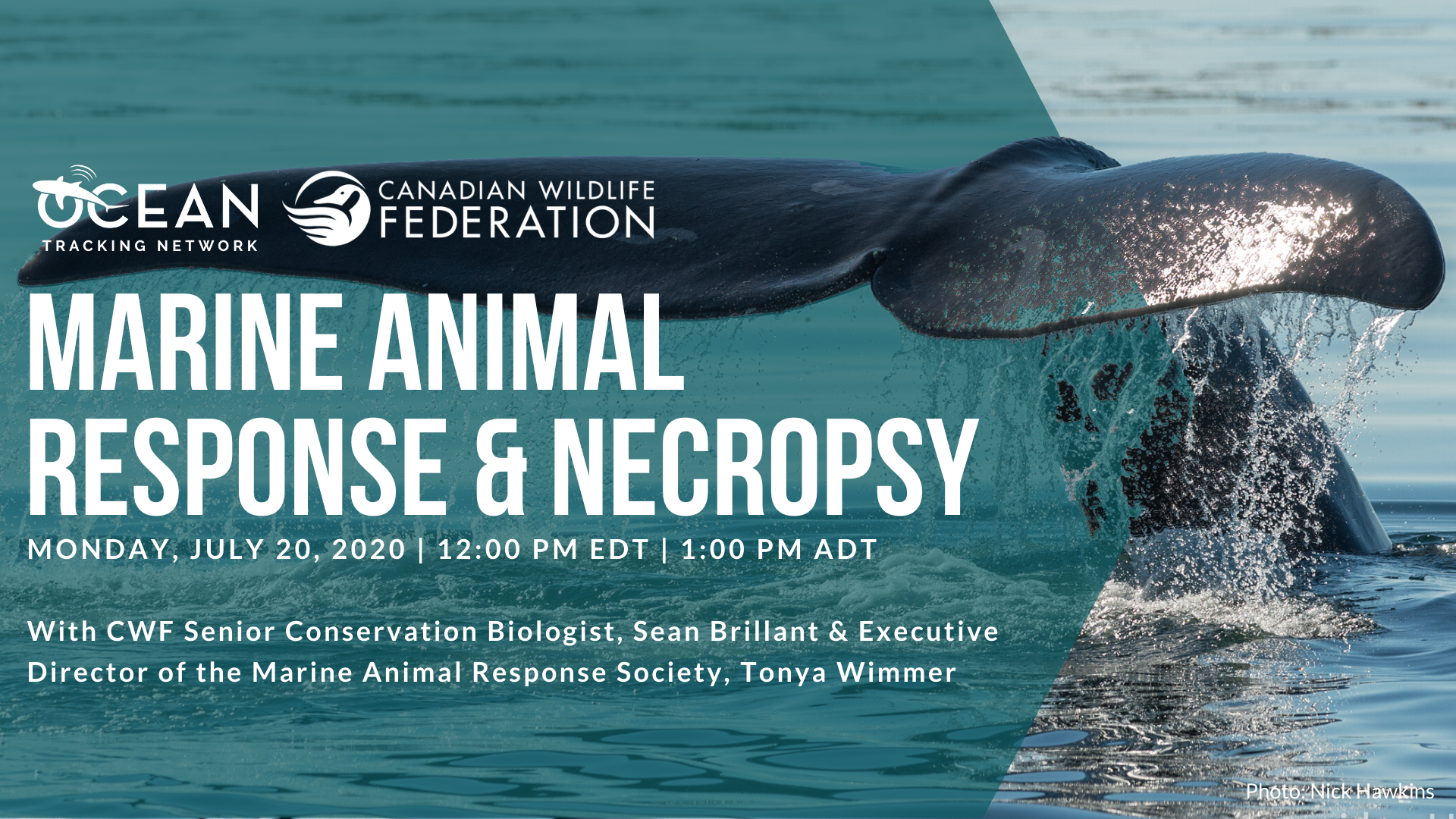
Marine Animal Response & Necropsy Webinar and Q&A
2020-07-20
Every year, more than 1,000 marine animal incidents are reported in Canada. Sean and Tonya will discuss the importance of responding to marine animal emergencies, and the essential conservation role you and other Canadians can play by reporting incidents. Sadly, some of these incidents have tragic endings. When a marine animal dies, a necropsy (or autopsy) can help us better understand and conserve marine wildlife. Tonya will share her experience participating in North Atlantic Right Whale necropsies, and we’ll discuss ways we can work together to conserve this important and critically endangered species.
-
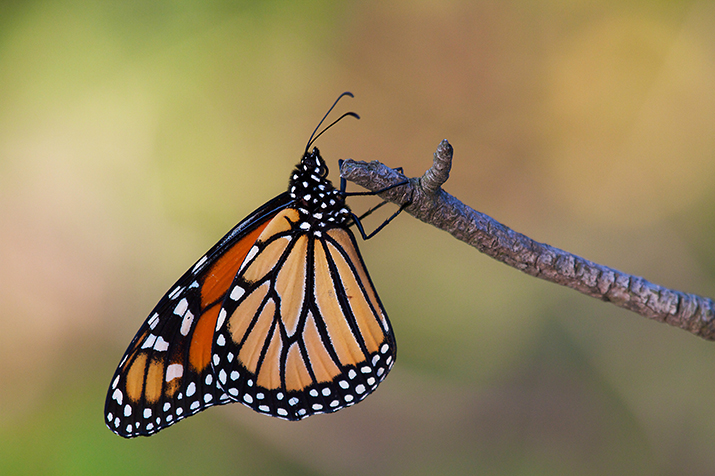
-
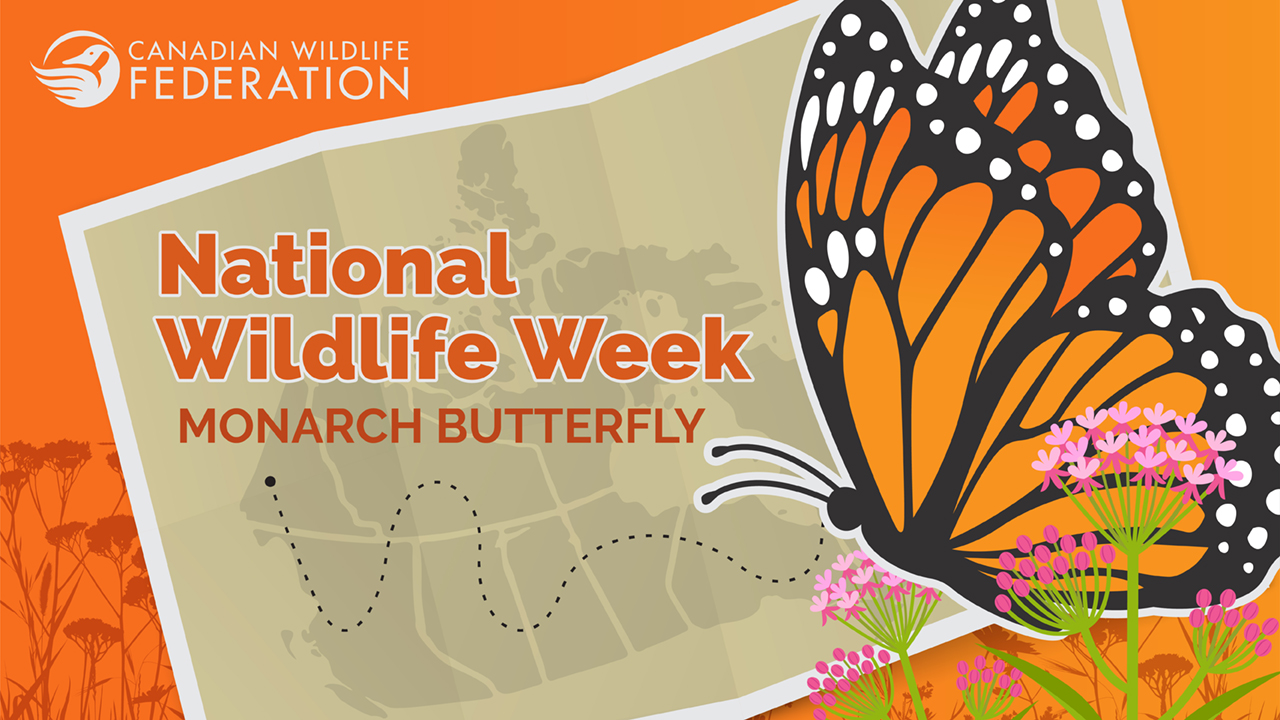
Monarch Butterflies With Michelle McPherson
2025-04-10
Michelle is a Wildlife Biologist with the Canadian Wildlife Federation. Her current area of focus is the Right-of-Way (ROW) Pollinator Habitat project, which is focused on the restoration of native meadow along roadsides, utility corridors, and solar farms in conjunction with a network of ROW managers. Join Michelle to learn more about what CWF is doing in collaboration with industry and community partners to restore habitat connectivity for pollinators, including the endangered Monarch butterfly.
-
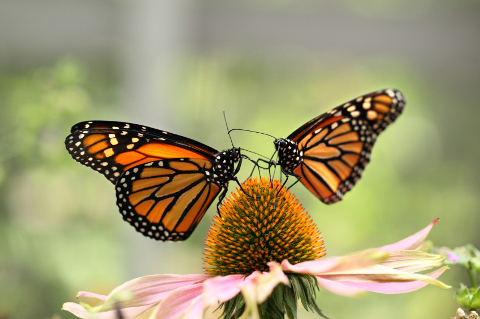
Monarch butterfly
2025-12-05
We’re featuring a monarch butterfly nabbing some nectar for a mid-afternoon snack
-
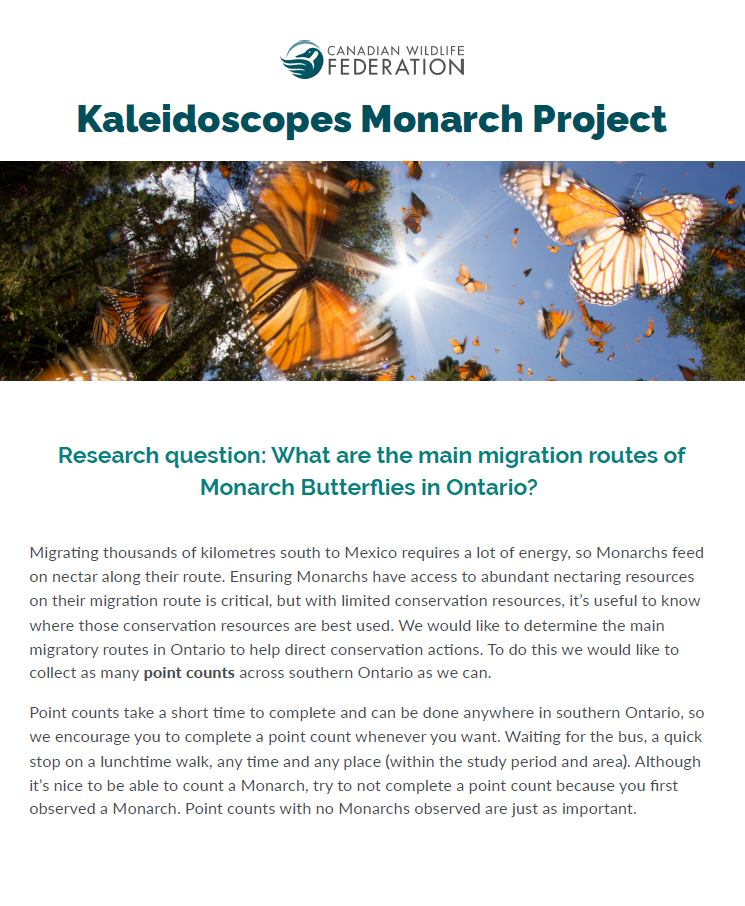
Monarch Point Count Data Guide
2025-12-05
-
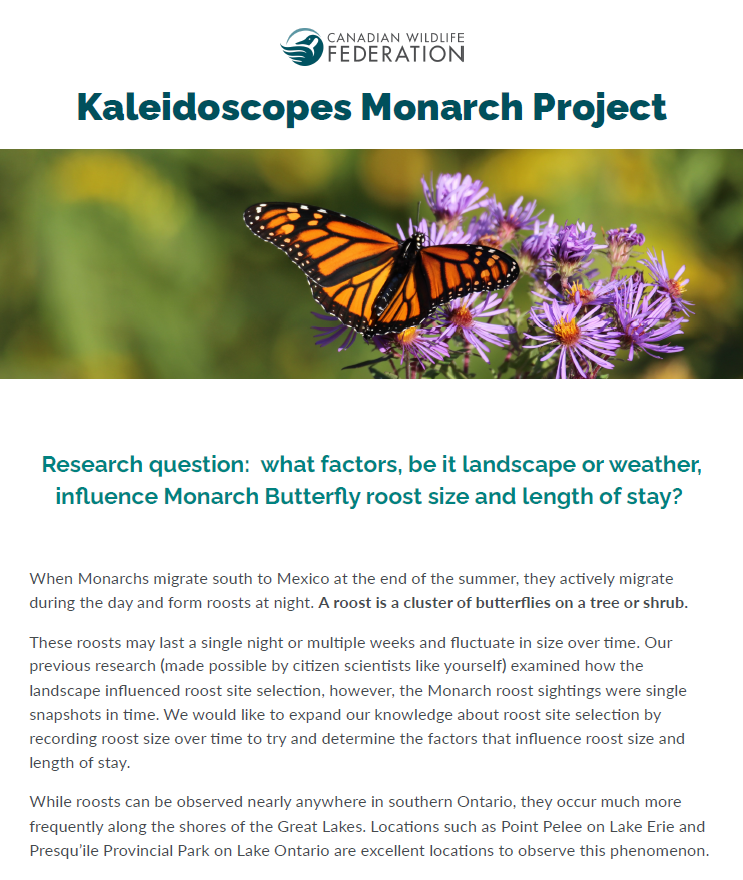
Monarch Roost Data Guide
2025-12-05
-
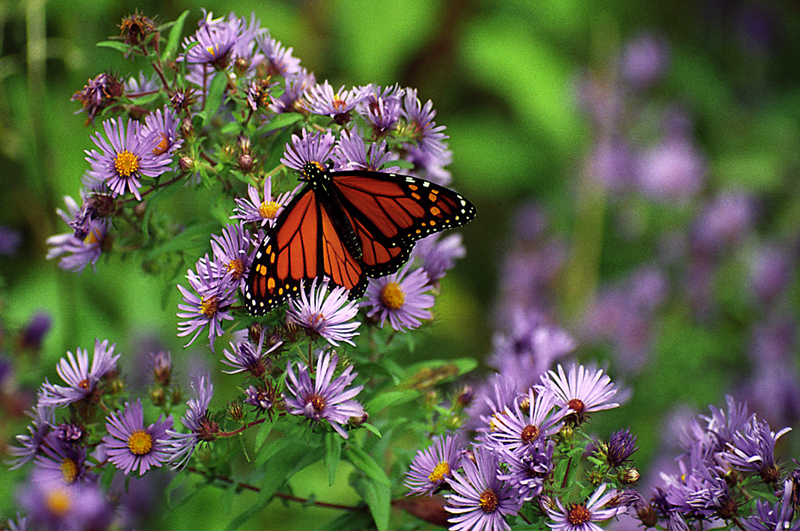
-
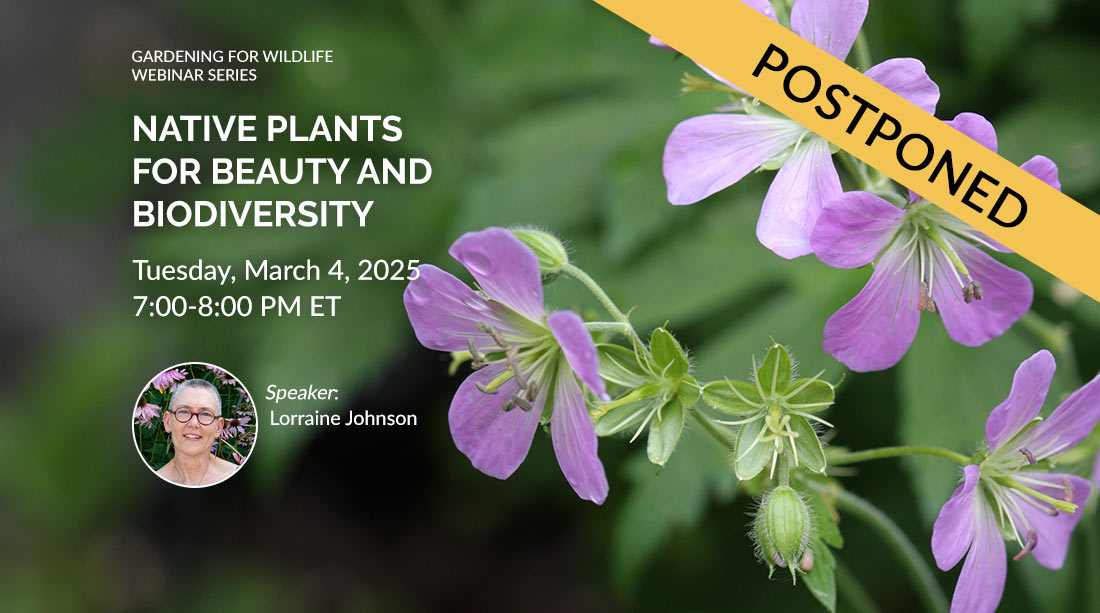
Native Plants for Beauty and Biodiversity
2025-12-05
***Thank you for registering for Native Plants for Beauty and Biodiversity with special guest Lorraine Johnson. Unfortunately, due to unforeseen circumstances, this webinar must be postponed until further notice. We are very sorry for any inconvenience. Once we know if and when it can be rescheduled, we will send you an email with all the details. Please note that we have other webinars coming up that may interest you ***** Join the Canadian Wildlife Federation and special guest, Lorraine Johnson, Tuesday, March 4, 2025 at 7 p.m. ET to discover some of Canada’s beautiful native plants, why they are so important and get great tips on growing them at home. Lorraine is a highly respected Canadian author and longtime native plant and sustainability expert. During our hour together, Lorraine will share the benefits of introducing native plants to the home landscape and community spaces as well as the best tips on how to introduce them to your property. She will focus on easy-to-grow species for conditions from shade to sun, dry to moist and more. Highlights include how to incorporate native plants into existing gardens and gorgeous plant combinations. We hope you can join us!
-
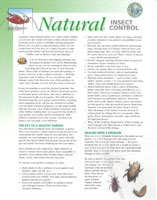
Natural Insect Control Handout
2025-12-05
A garden is more than just plants. It may be tempting to reach for chemical pesticides. But while these products can be an effective short-term answer, they don't contribute to the long-term health of your garden.
-

Ocean Habitats and Wildlife Webinar
2013-02-27
Dr. Sean Brillant continues his webinar series, talking to classes about Ocean Habitats and Wildlife as they relate to the Africa to America's row, crossing the Atlantic ocean right now!
-

-
Organic Site Preparation for Wildflower Establishment
2019-05-07
Pollinators are a priority resource concern for many conservationists and farmers. The Xerces Society conducted field trials throughout the Easter, Midwestern and Western United States to inform best practices.
-
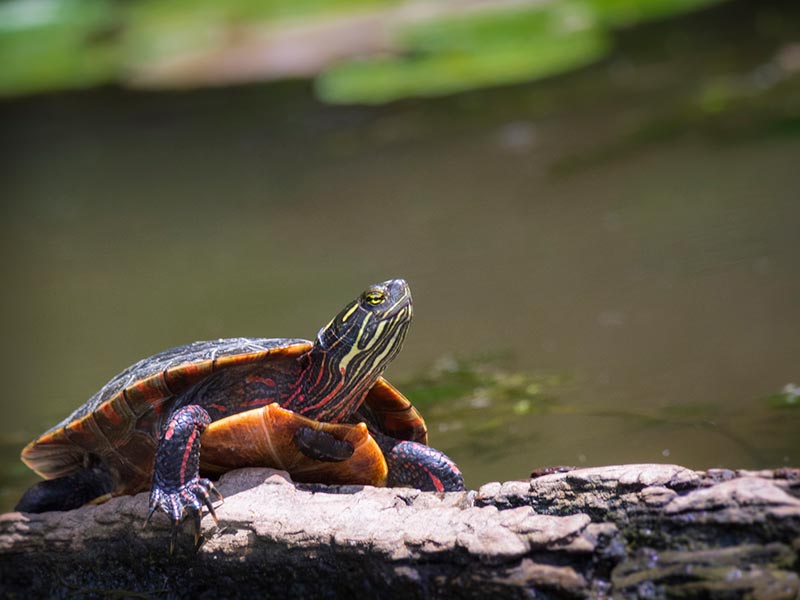
-
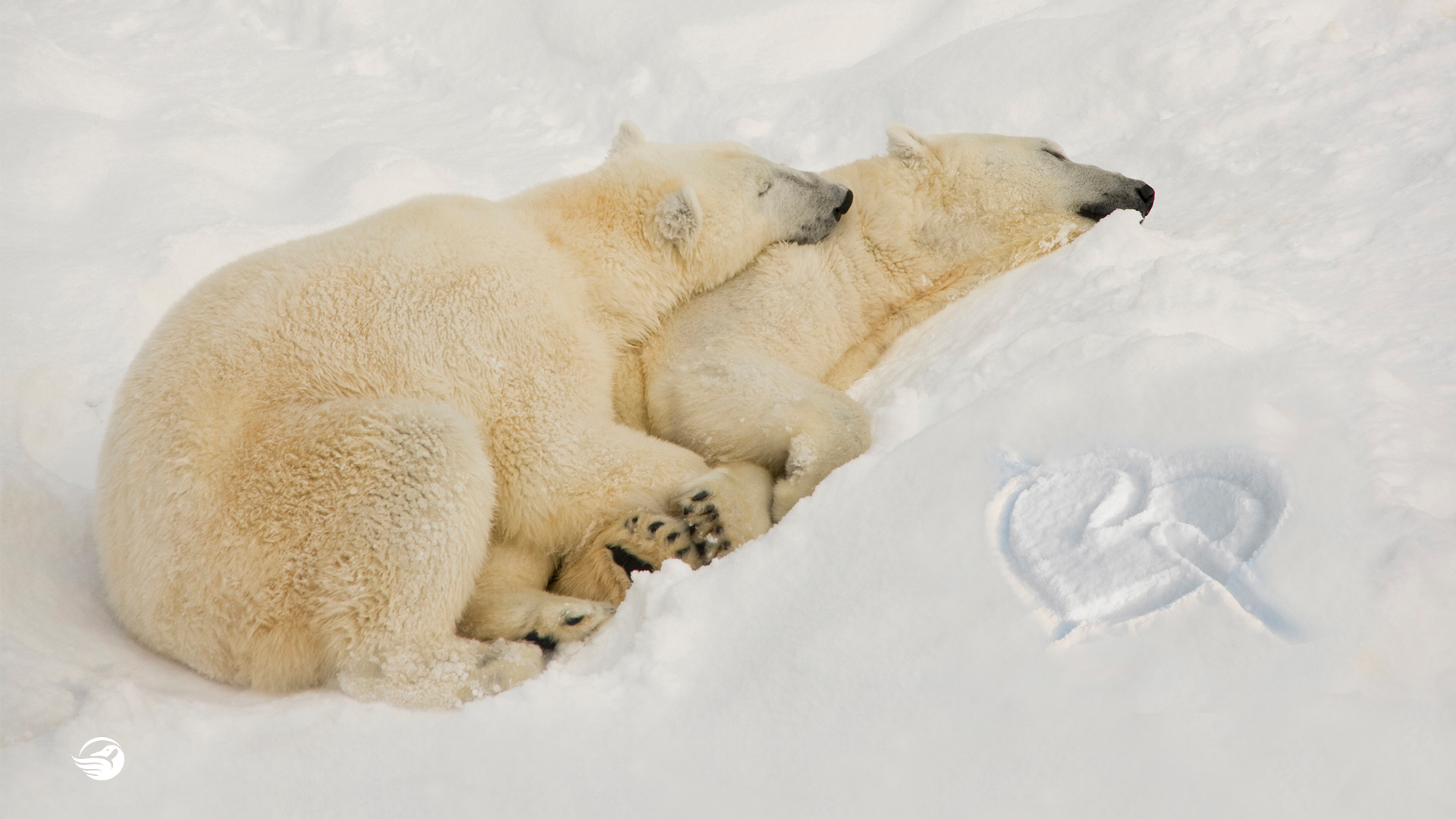
-
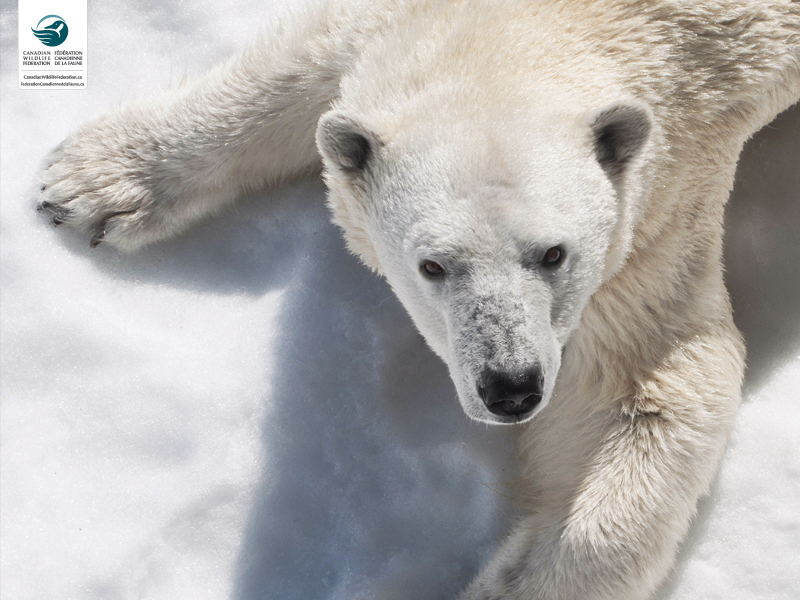
-
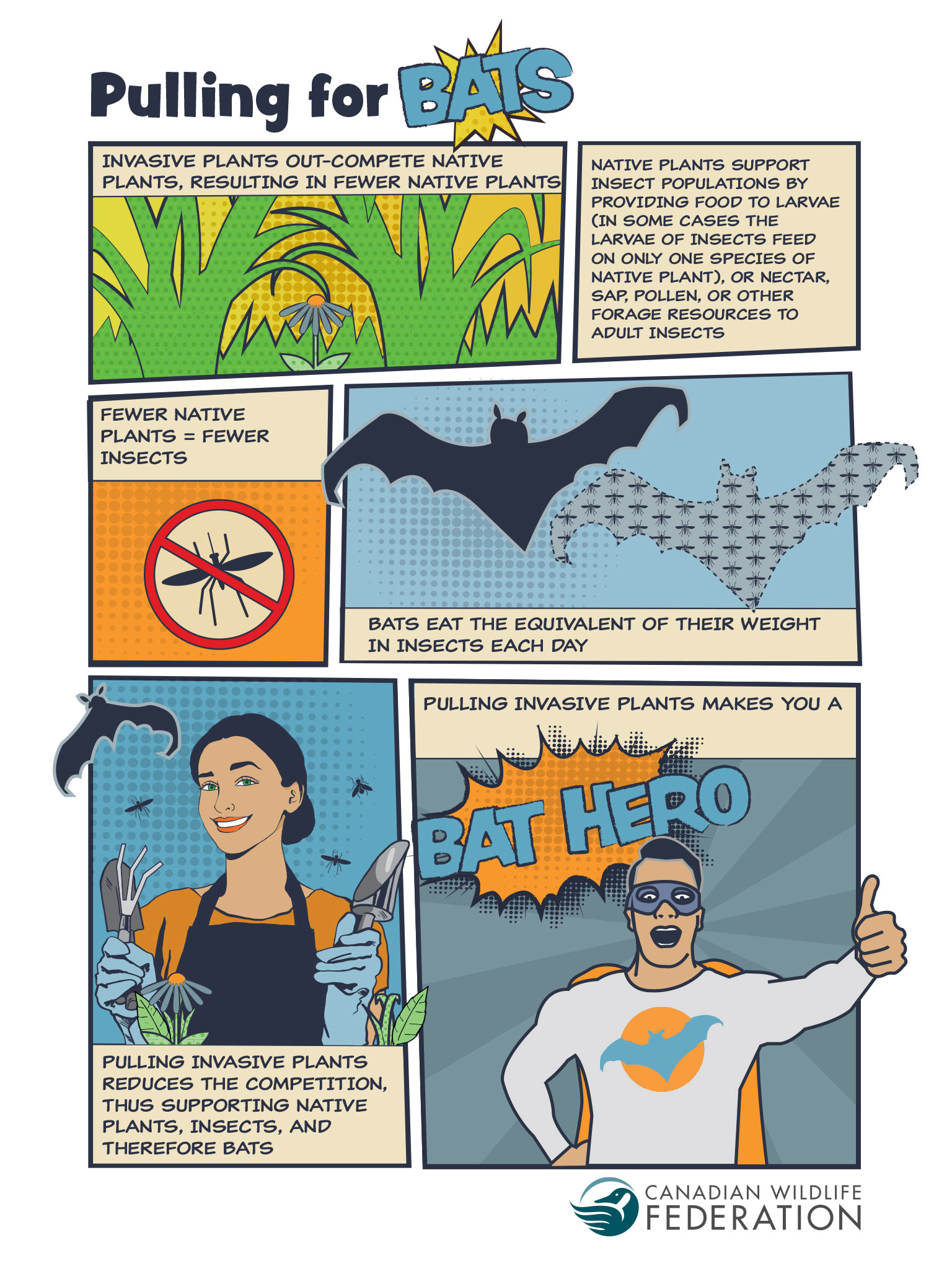
Pulling for Bats
2017-09-13
Native plants support diverse insect populations by providing food for adults and larvae. Insects will feed on nectar, pollen or leaves and some will forage on only one species of native plant!
-

Species at Risk in Canada: Lending a Helping Hand with James Pagé
2020-07-02
Join us for an evening all about species at risk with James Pagé from the Canadian Wildlife Federation (CWF)! James will lead a Zoom webinar with a focus on species at risk in Canada, CWF’s recovery work and Citizen Science. Participants will then have the chance to ask their questions through an interactive Q&A session. Begins at 7pm. Approximately 1-1.5 hours. Space is limited.
-
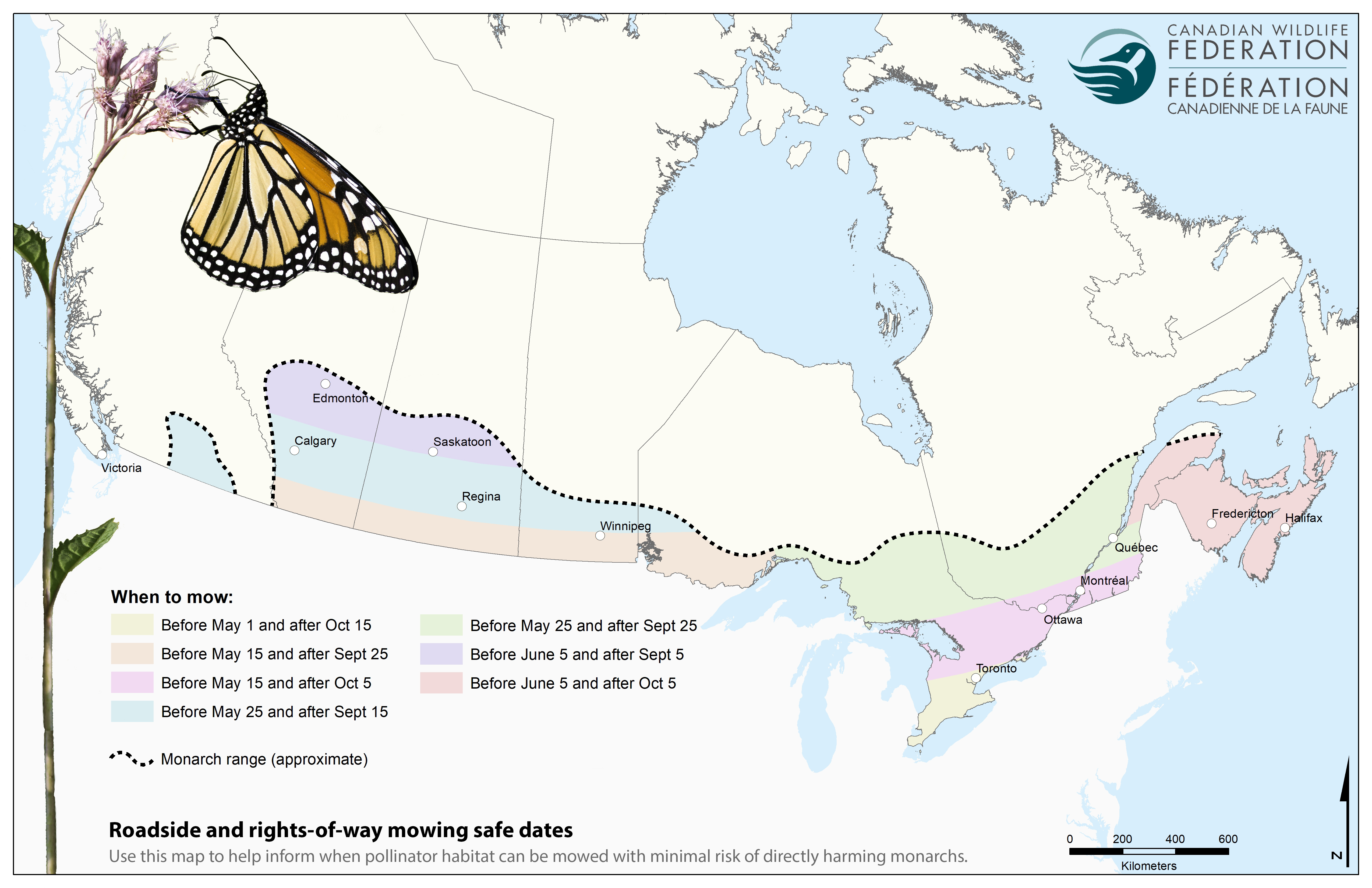
Spring Monarch Mowing Map
2022-05-01
-
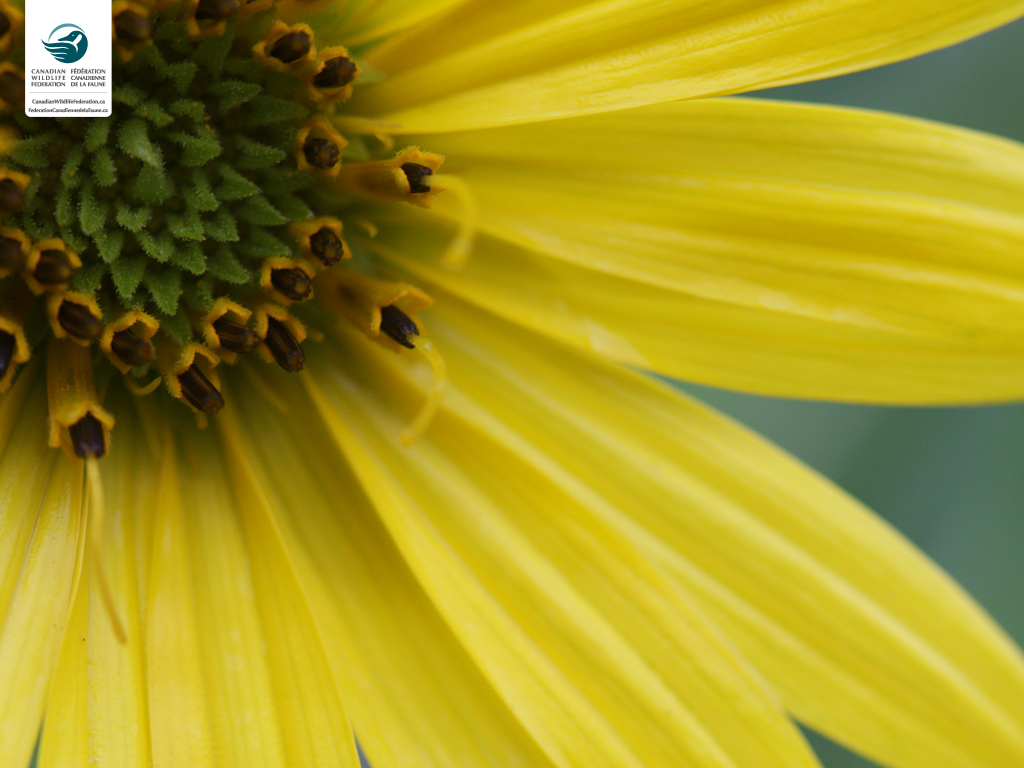
-
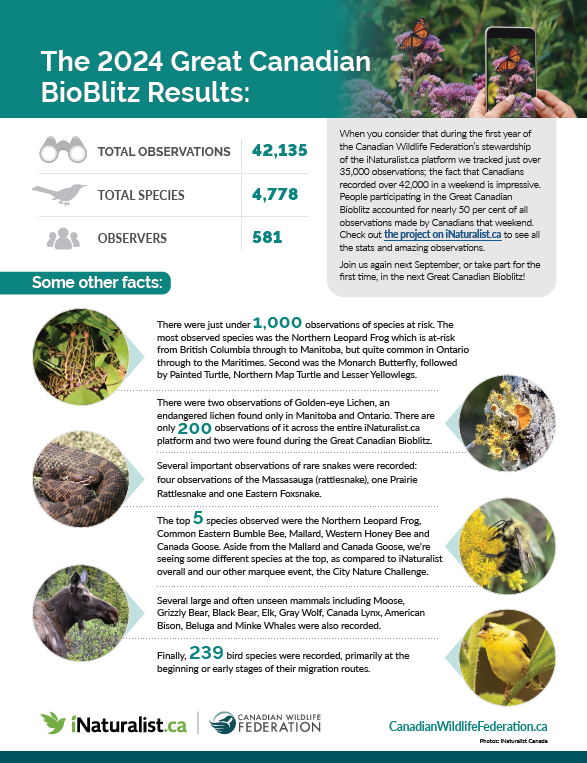
The 2024 Great Canadian Bioblitz Results
2024-10-01
-
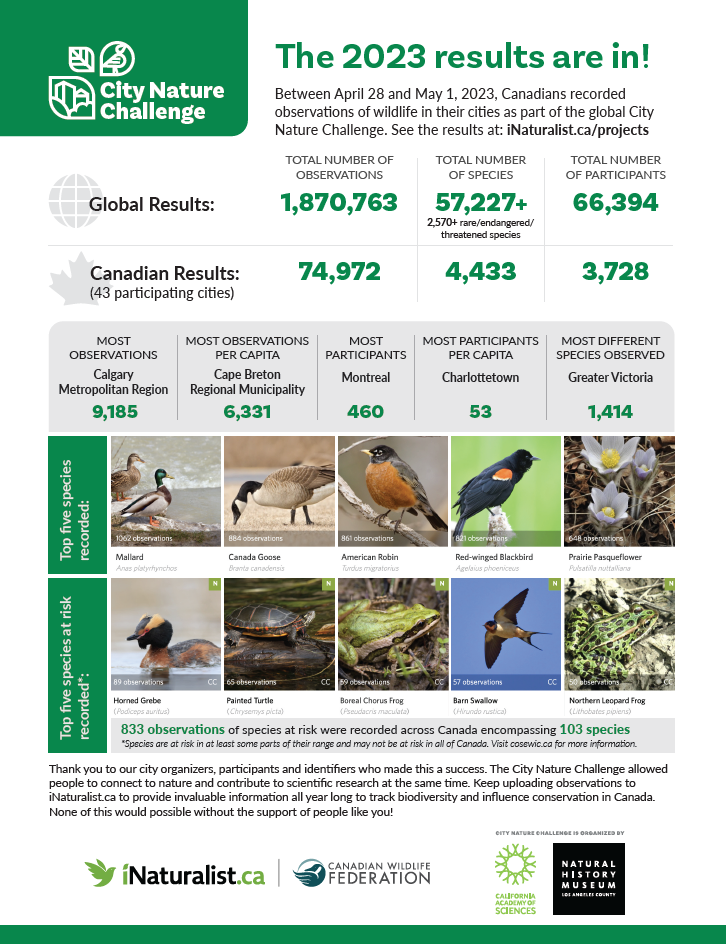
The City Nature Challenge 2023 Results
2023-05-10
Between April 28 and May 1, 2023, Canadians recorded observations of wildlife in their cities as part of the global City Nature Challenge. See the results at: iNaturalist.ca/projects
-
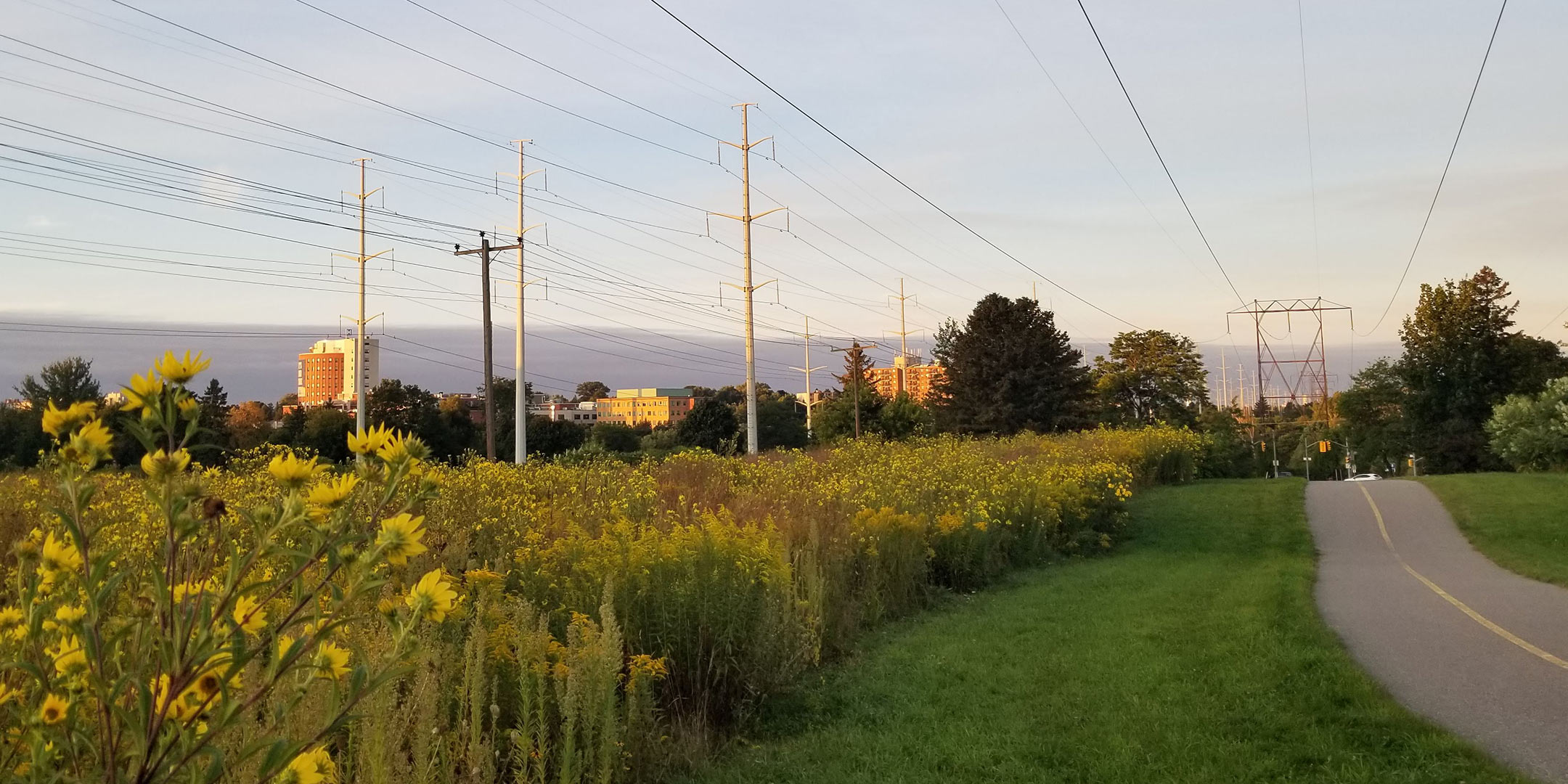
The Meadoway: Planning and Restoring Pollinator Habitat in a utility corridor in Toronto, Ontario
2020-01-30
The Meadoway is transforming a hydro corridor in Scarborough, ON into a vibrant sixteen-kilometre stretch of urban greenspace and meadowlands that will become one of Canada’s largest linear urban parks. Cyclists and pedestrians will soon be able to travel from the heart of downtown Toronto to Rouge National Urban Park without ever leaving nature. Over the next seven years, this site will become a place filled with butterflies, birds and wildflowers – a rich meadow landscape realized on a scale never before seen in Toronto. This webinar will help to showcase and walk you through the overall planning, permits/policies, education/outreach, communication and meadow restoration needed to create a project similar to The Meadoway.
-
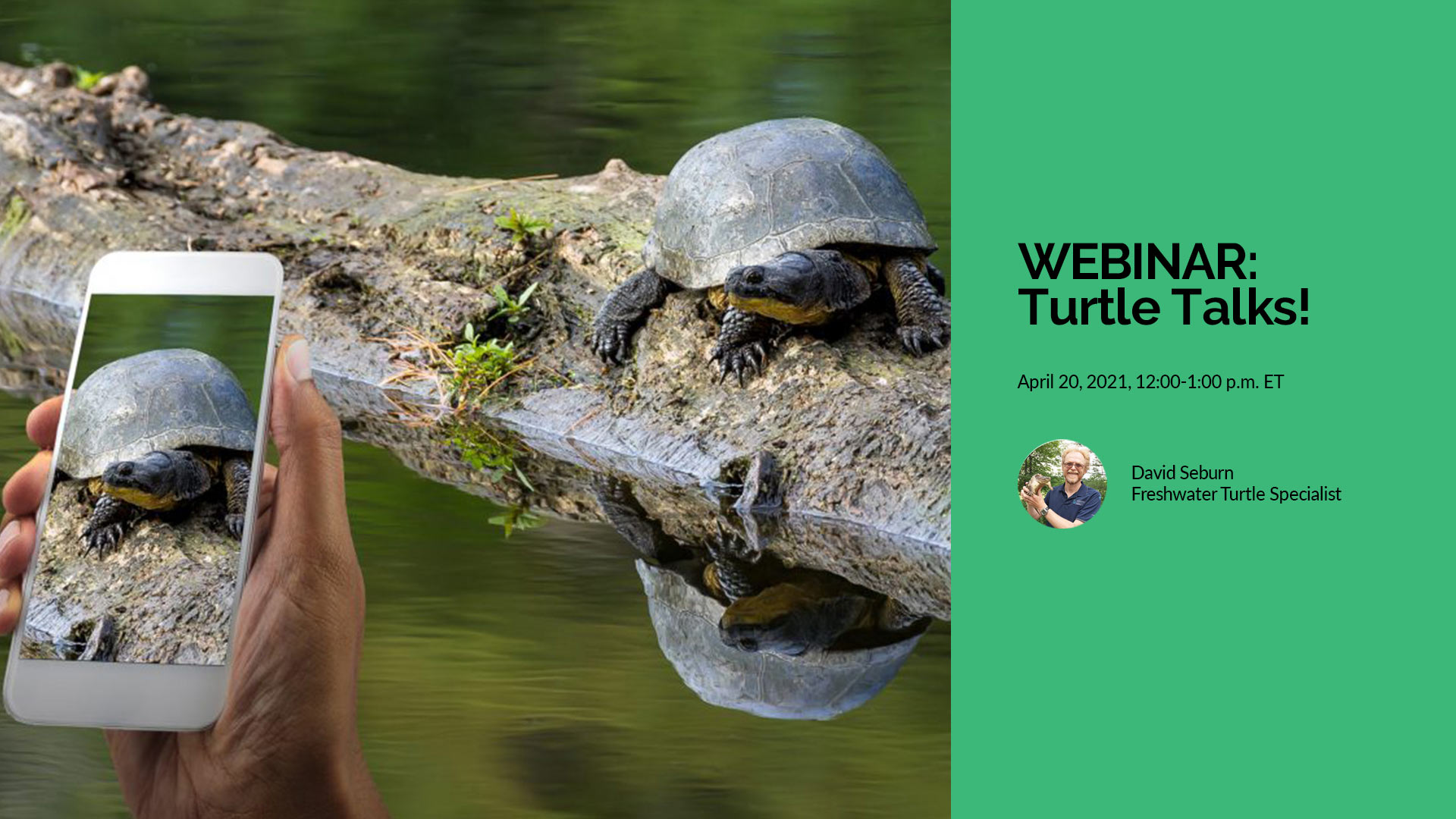
Turtle Talks Webinar
2021-04-20
April 20, 2021, 12:00-1:00 p.m. ET Who doesn’t love turtles?! They’re cute, they’re interesting and they come in so many shapes and size. They’re also one of the most endangered groups of species in Canada. Join us for a webinar all about turtles, and discover what the Canadian Wildlife Federation is doing to help them and what you can do to help, too!
-
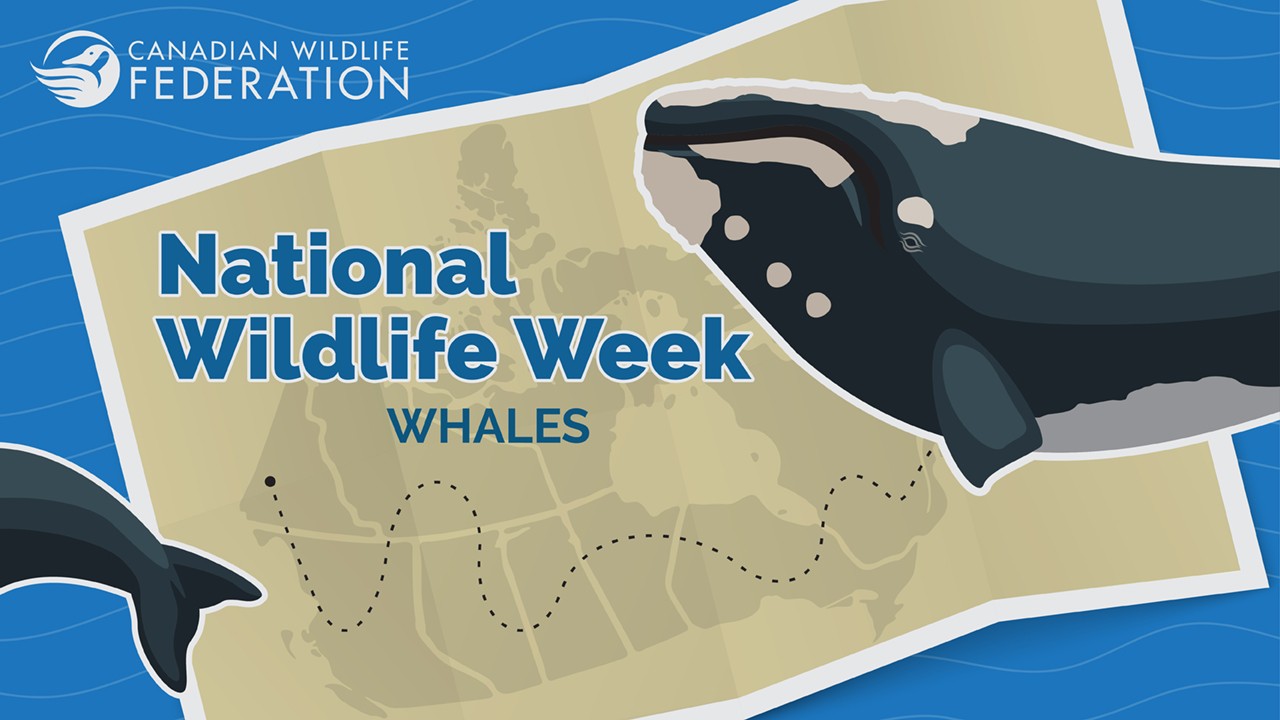
Whales With Shiva Javdan
2025-04-11
Dr Shiva Jian-Javdan is a Research Scientist with the Canadian Wildlife Federation (CWF). For more than a decade, Shiva’s dedication to marine mammal science and conservation has led her to projects with NGOs in Hong Kong, Taiwan, and Greece. Since returning to Canada, Shiva has focused on large whales, the missing piece in her cetacean bingo card, with current projects aimed at assessing entanglement risk of North Atlantic right whales. Join Shiva in a conversation on Canada’s largest migratory animals and learn what CWF is doing to help conserve the most at-risk whale species, the North Atlantic right whale.
-
What to do if You Hook a Turtle in B.C.
2020-04-27
British Columbia’s turtles are in decline and need all the help they can get!
-
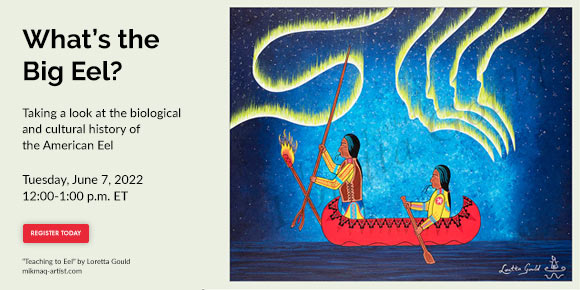
What’s the Big Eel?
2022-06-07
June 7, 2022, 12:00 – 1:00 p.m. ET. Join CWF’s Senior Conservation Freshwater Ecology Biologist Nicholas Lapointe and Jennifer Sylliboy, Program Manager Unama’ki Institute of Natural Resources, as they discuss the biological and cultural history of the American Eel. Jennifer will present on American Eel in the Bras d’Or Lake, Cape Breton, Nova Scotia and the relationship between Kat (eel) and the Mi’kmaq people. The population of American Eel has declined in the Bras d’Or Lakes over the past 20 to 30 years. While many Mi’kmaw harvesters feel the population is still good and has seen its ups and downs, its future is uncertain. Mi’kmaq people have traditionally harvested adult eel for food and cultural purposes for thousands of years. The value of eels to Mi’kmaq culture is difficult to quantify. The value is not driven by dollars, landings, or economic potential. The value is in the life, culture, health, and spirituality they sustain. With population declines globally, we need to ask ourselves what would our lives be like without the American Eel? And what can or are we doing to ensure that doesn’t happen. Nick will take us through the American Eel’s unique and fascinating life history and their conservation crisis in Canada. Sadly, this life history places them at risk from human activities and has contributed to their global decline. Alarms were first raised in the early 1990s about their decline in Canada due primarily to hydropower dams. But little has changed to address this threat. The federal Fisheries Act and Species at Risk Act should both protect the species, along with provincial legislation, but so far regulators have taken little action. We will explain what has been done to date, what has stalled, and what can be done to change the situation and help American Eel recover.
-
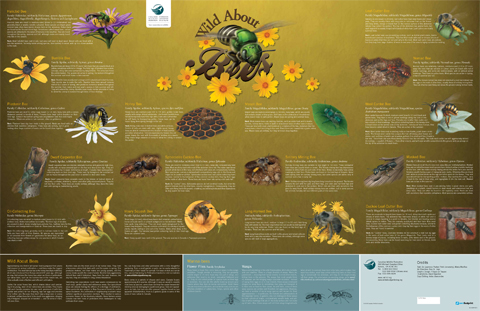
Wild About Bees Poster
2025-12-05
Approximately one-third of all human food is prepared from plants that depend on animal pollinators — and bees make the biggest contribution. The most familiar bee is the honey bee (Apis mellifera), which was introduced from Europe almost 400 years ago. Although we may first picture the honey bee when we think of pollinators, our native bees, such as the bumble bee or the mason bee, are often actually more effective and efficient pollinators. Unlike the social honey bee, which shares labour and caretak-ing of its young, most of our native bees are solitary. This means that each female prepares her own nest, provisions it with food (nectar and pollen) for her offspring, lays her eggs and provides little further care.
-
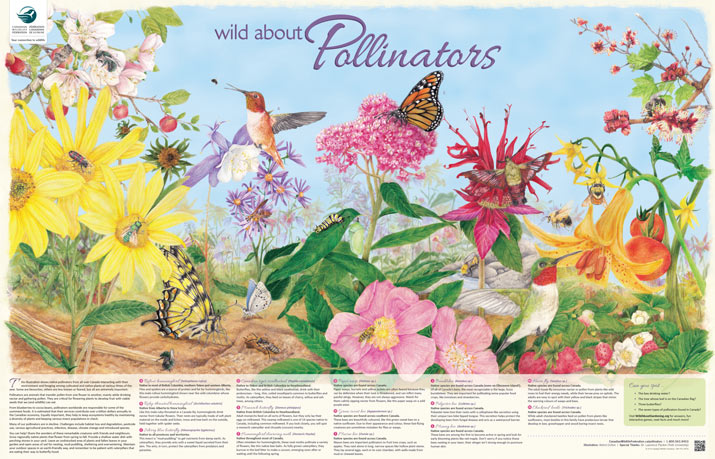
Wild About Pollinators Poster
2025-12-05
This illustration shows native pollinators from all over Canada interacting with their environment and foraging among cultivated and native plants at various times of the year. Some are favourites, others are less known or feared, but all are extremely important.Pollinators are animals that transfer pollen from one flower to another, mainly while drinking nectar and gathering pollen.
-
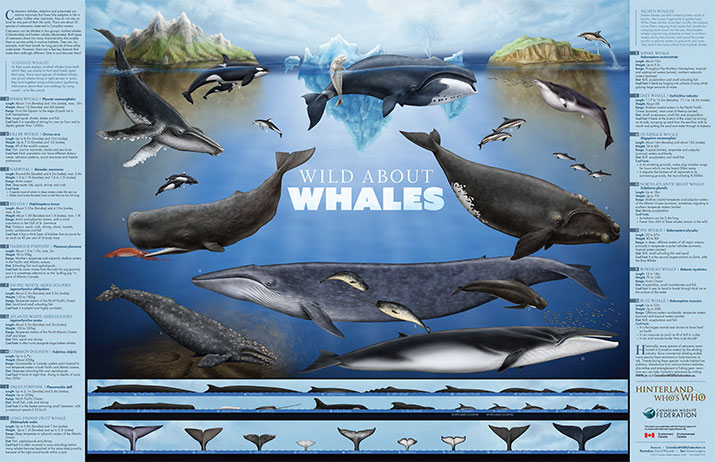
Wild About Whales Poster
2025-12-05
Cetaceans (whales, dolphins and porpoises) are marine mammals that have fully adapted to life in water. Unlike other mammals, they do not rely on land for any part of their life cycle. There are about 33 species of cetaceans observed in Canadian waters.Cetaceans can be divided in two groups: toothed whales (Odontocetes) and baleen whales (Mysticetes). Both types of cetaceans share the many characteristics that enable them to survive solely in marine habitats. They can, for example, hold their breath for long periods of time while underwater. However, there are a few key features that make them strikingly different. Dive in and discover them!
- 0
- 1
- 2
- 3







